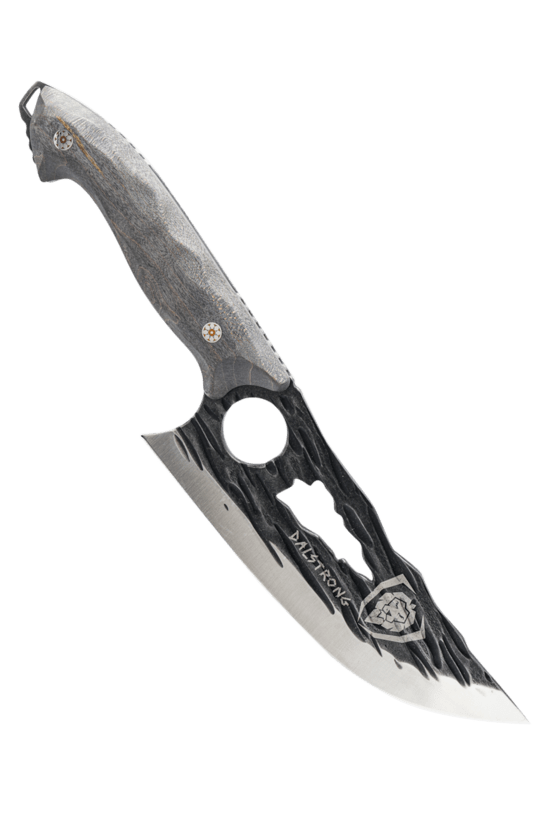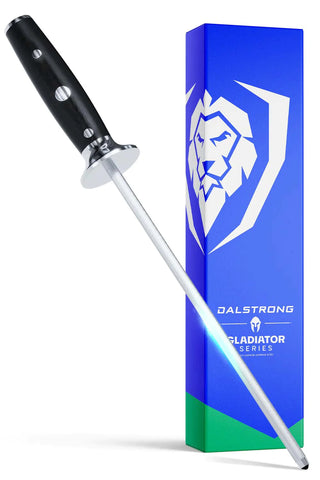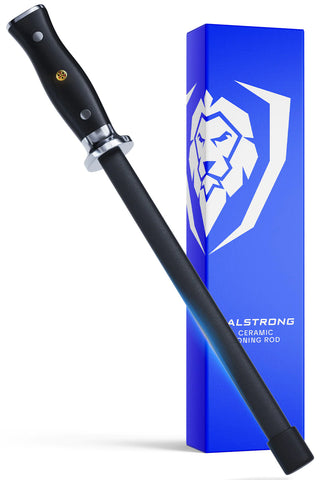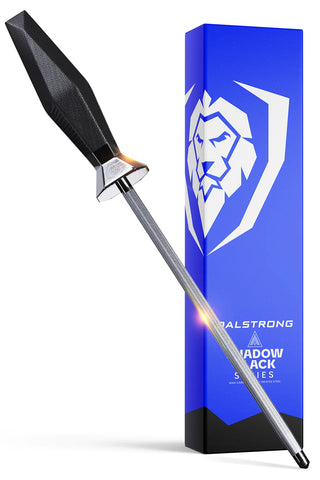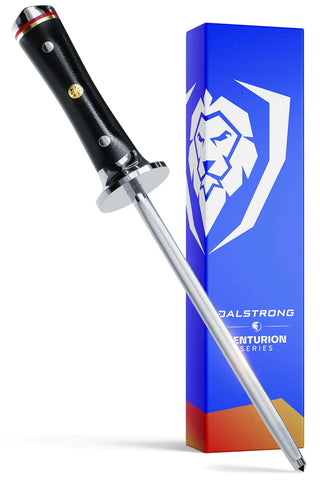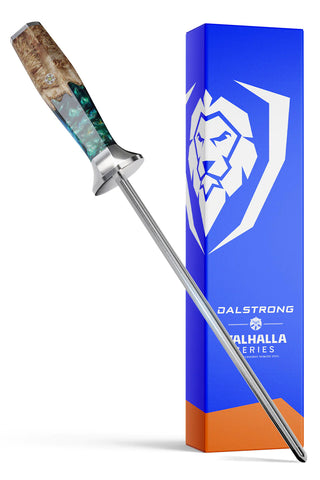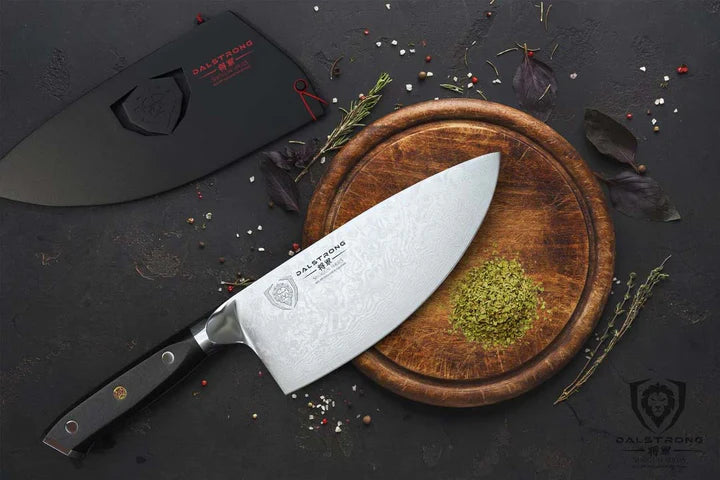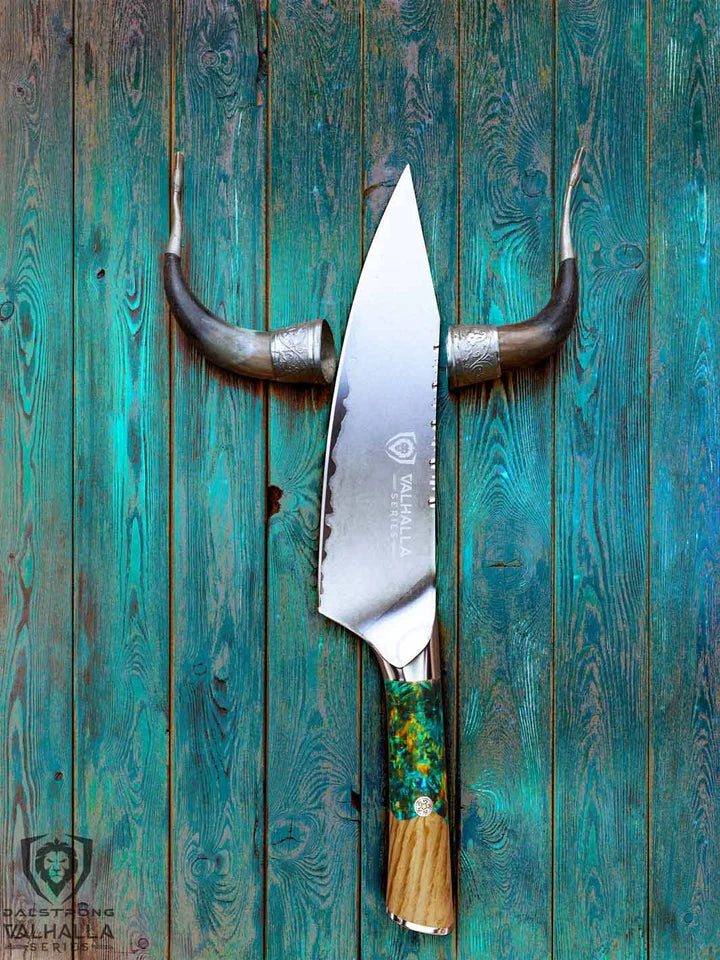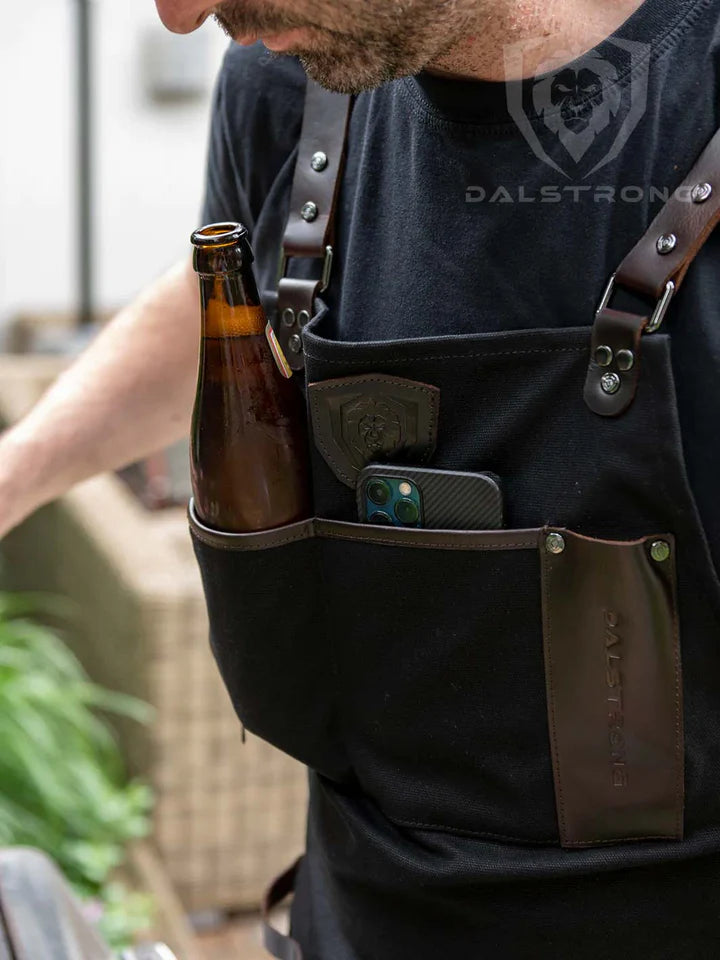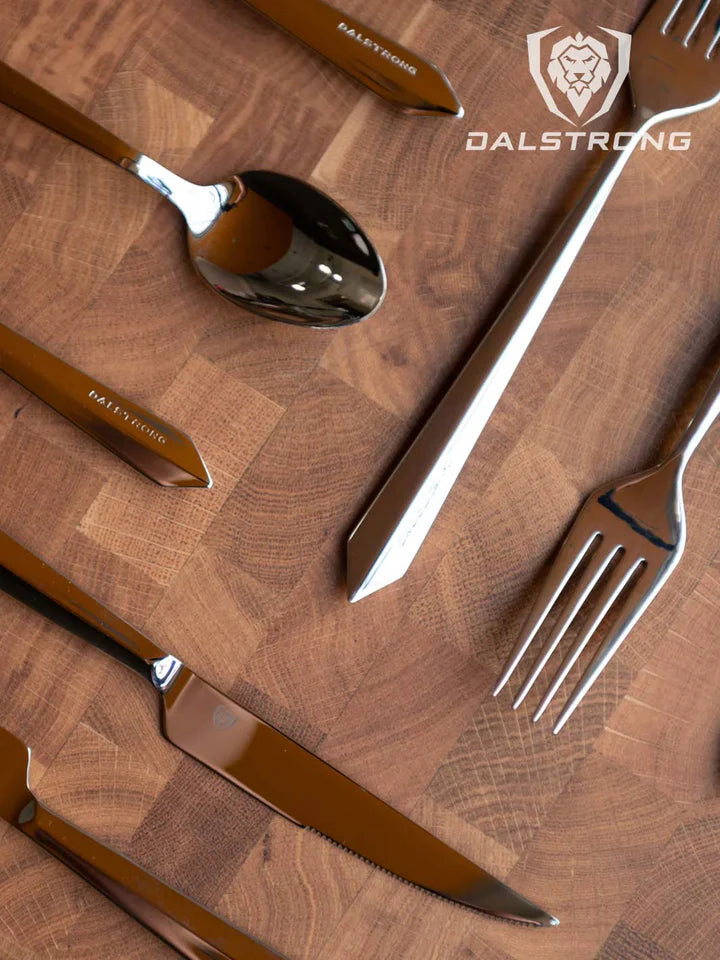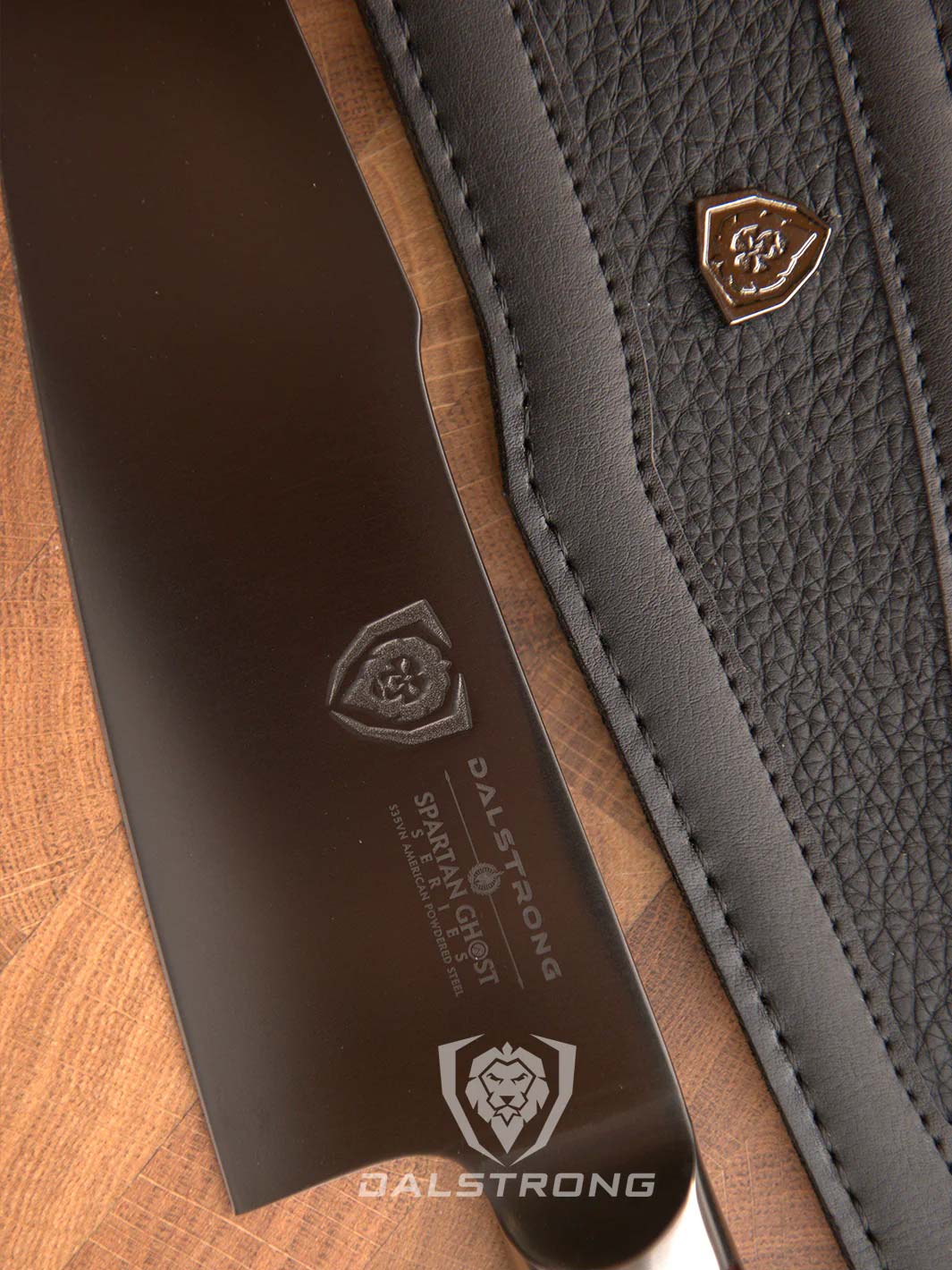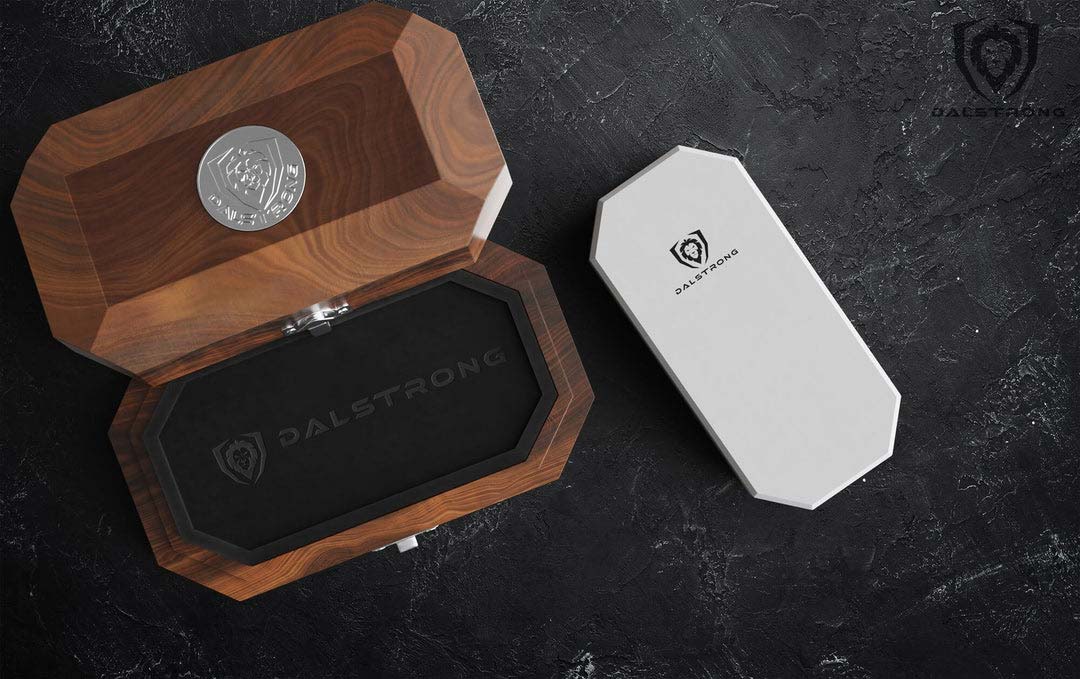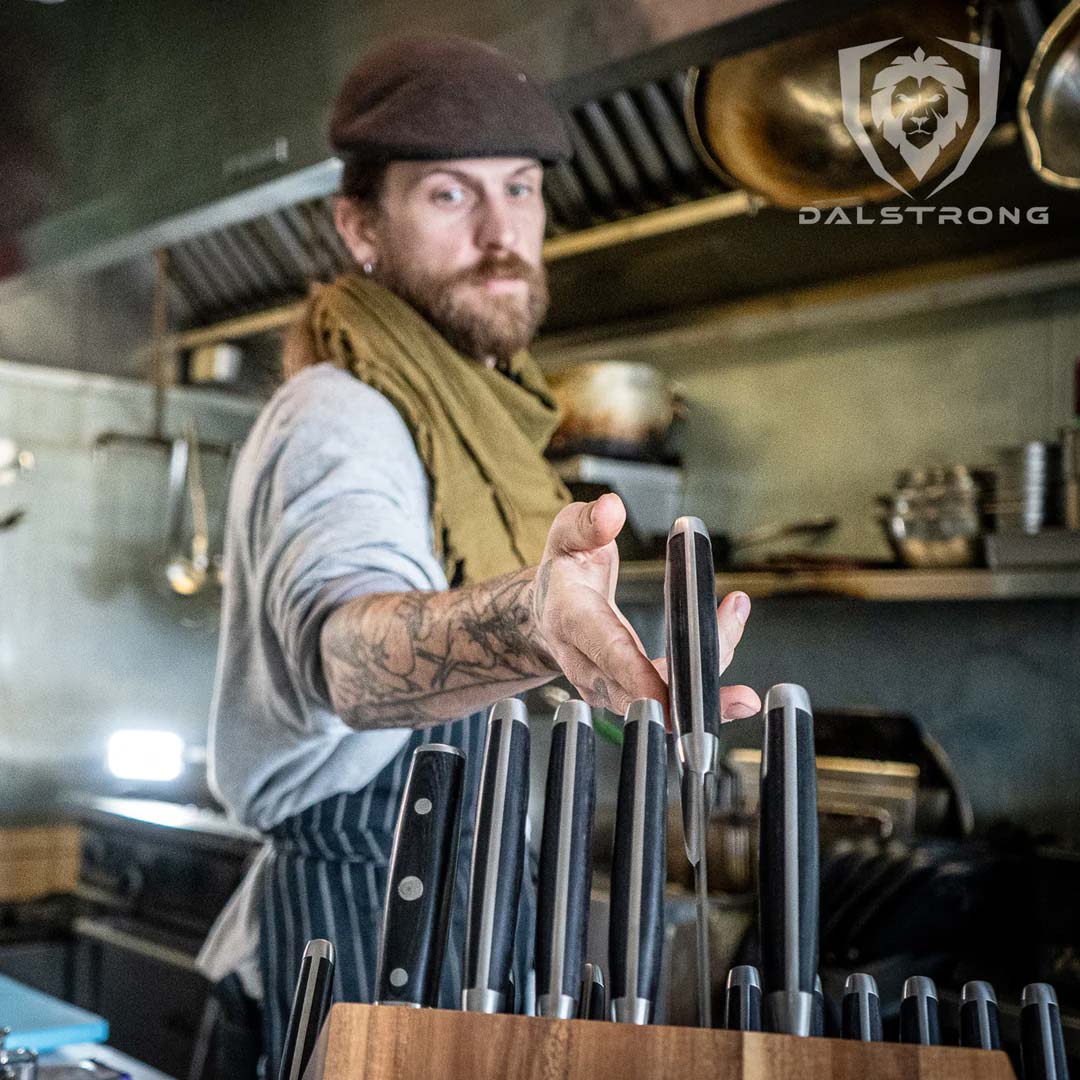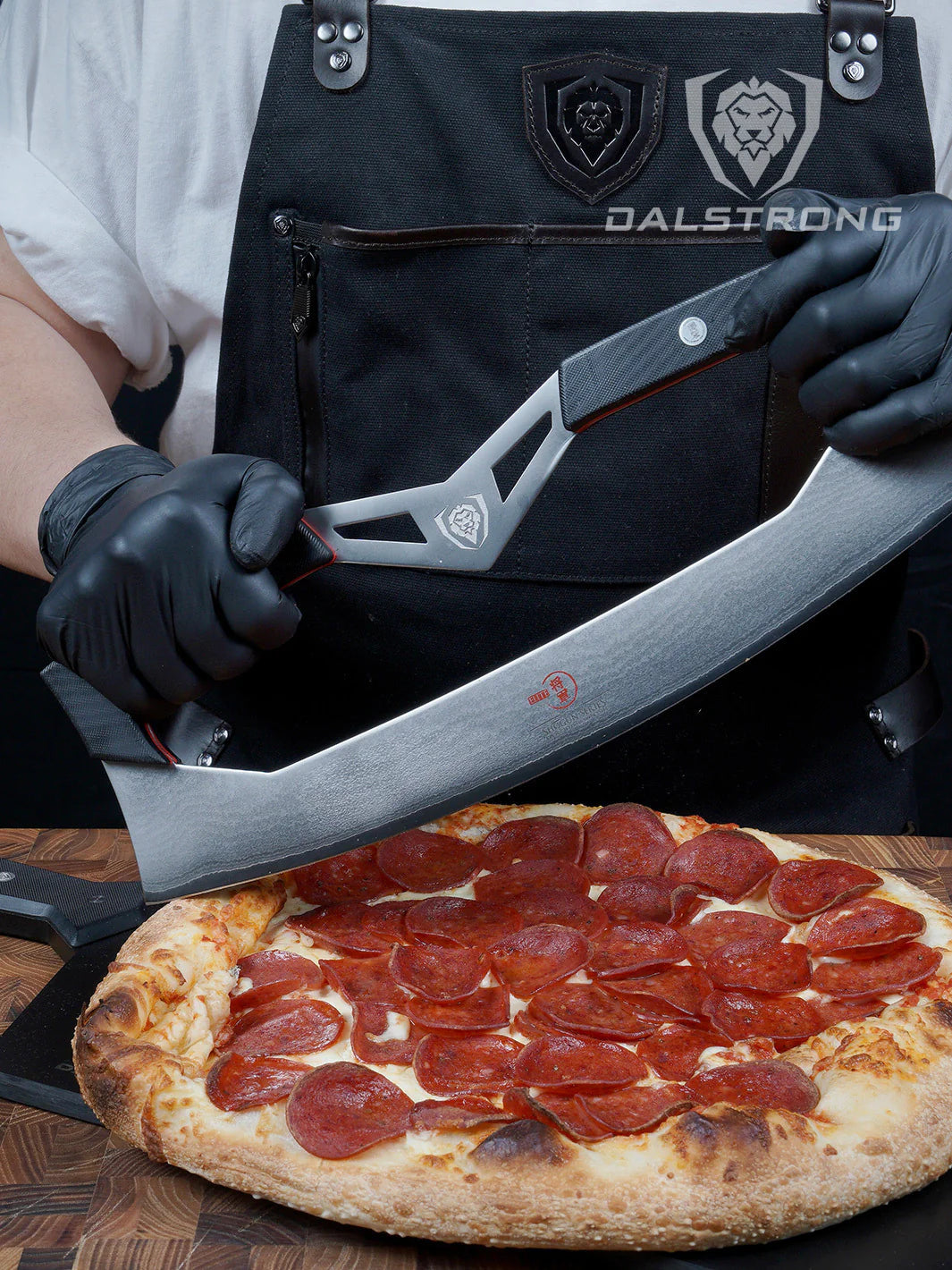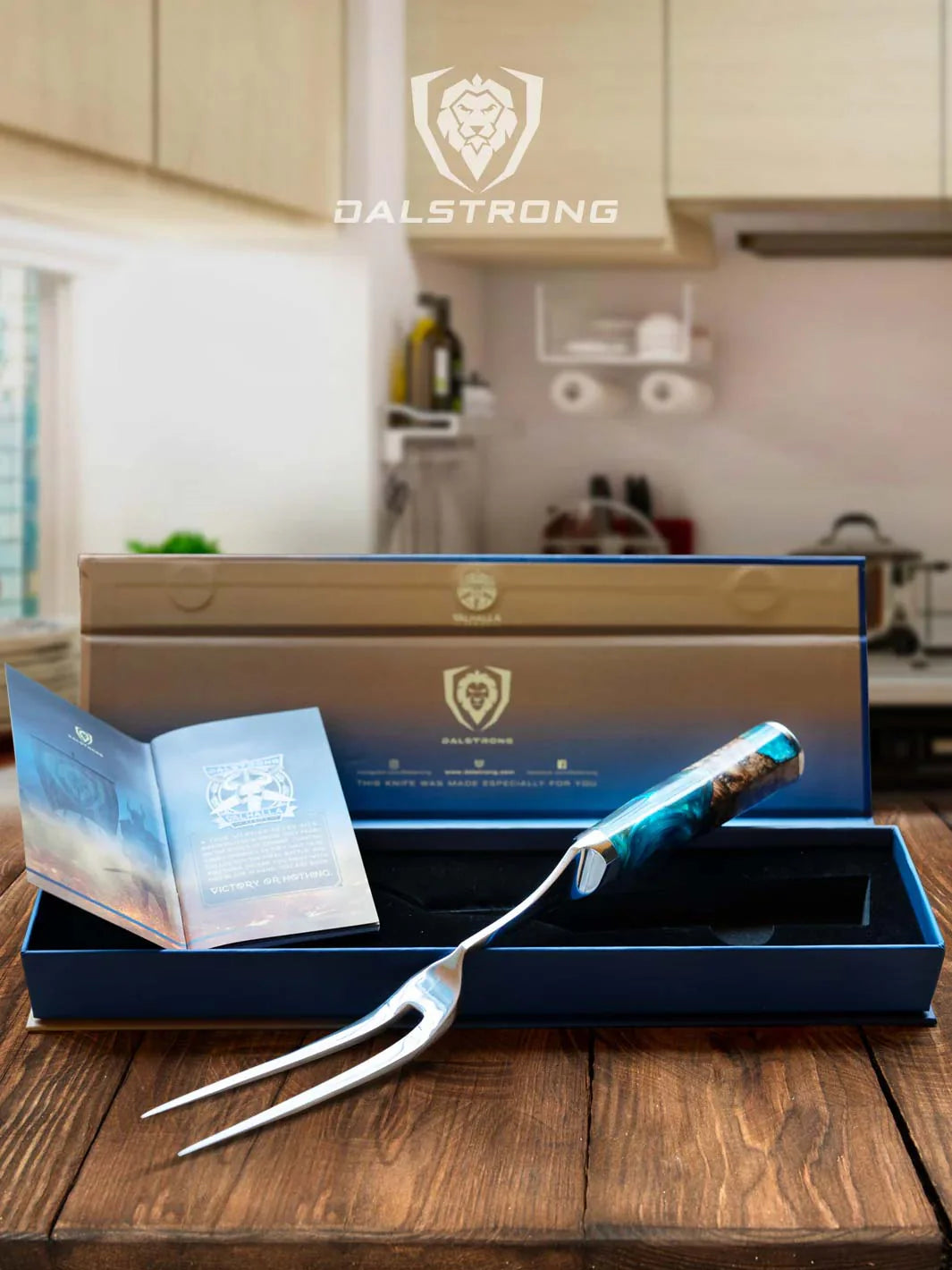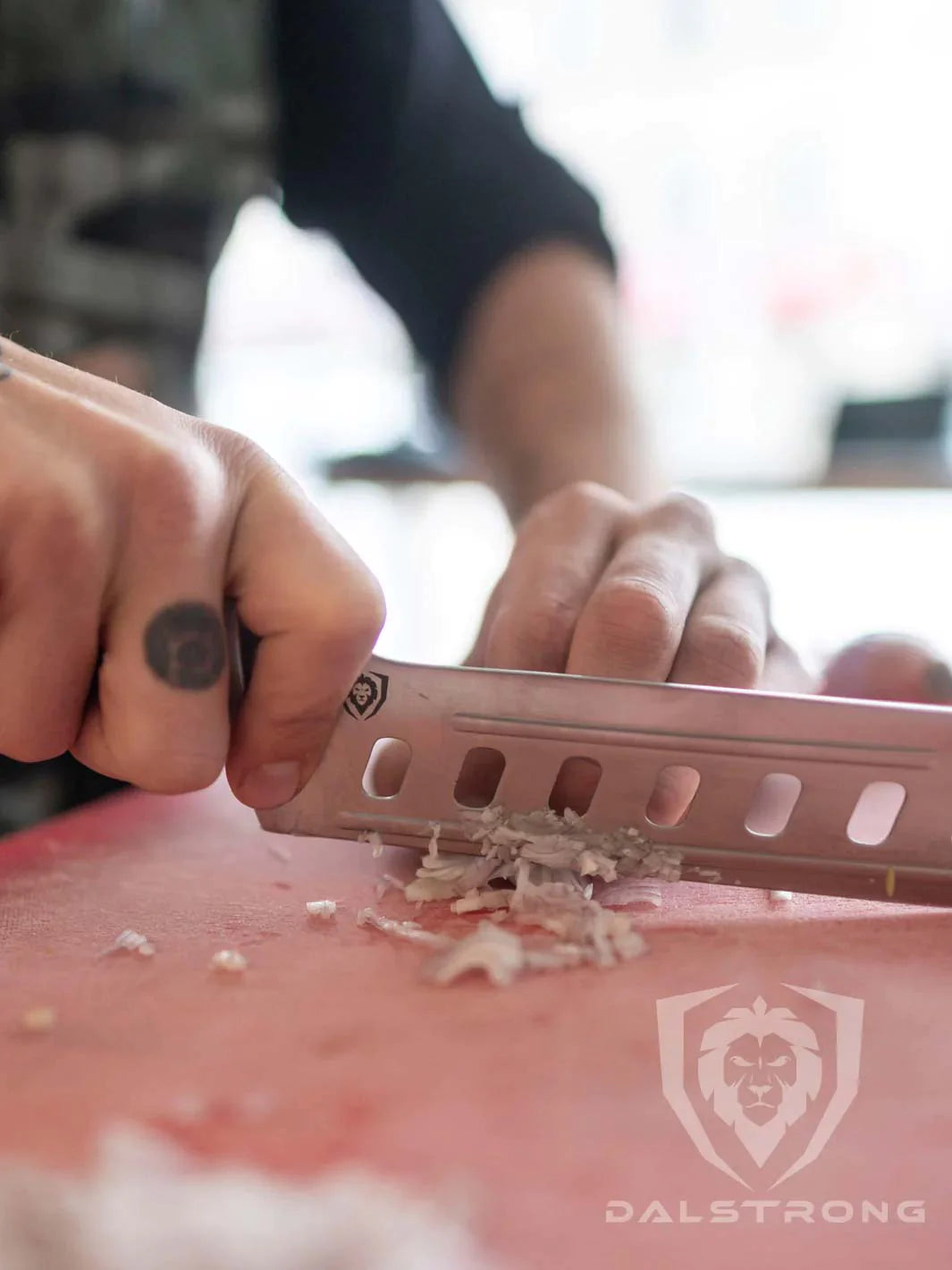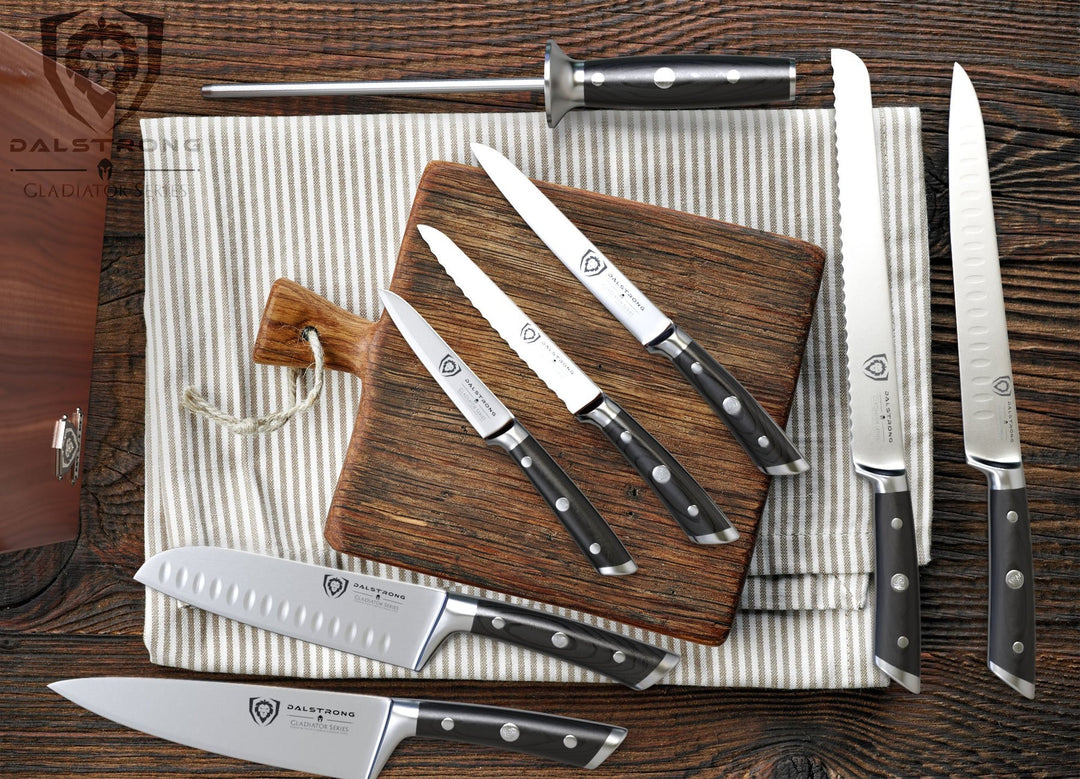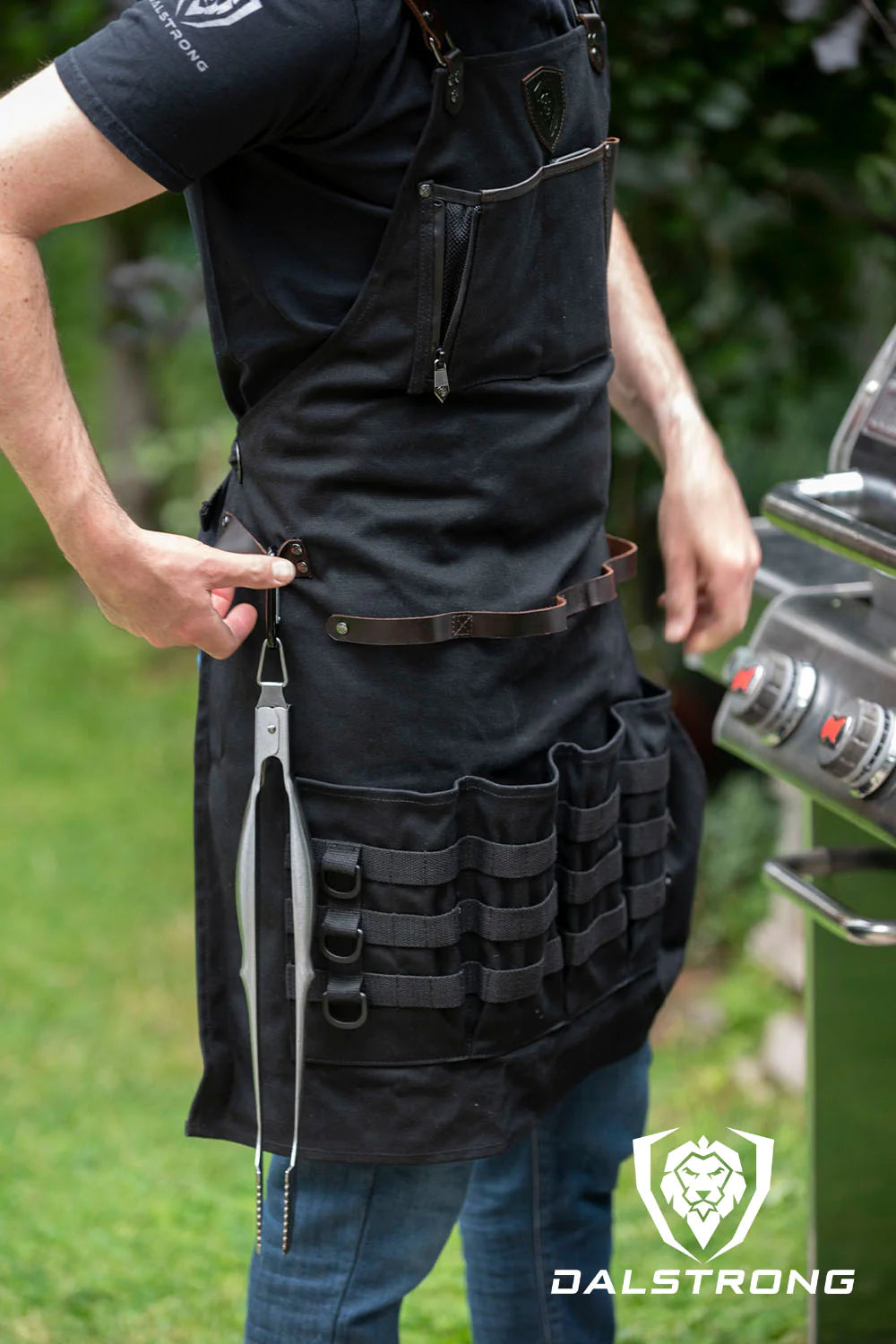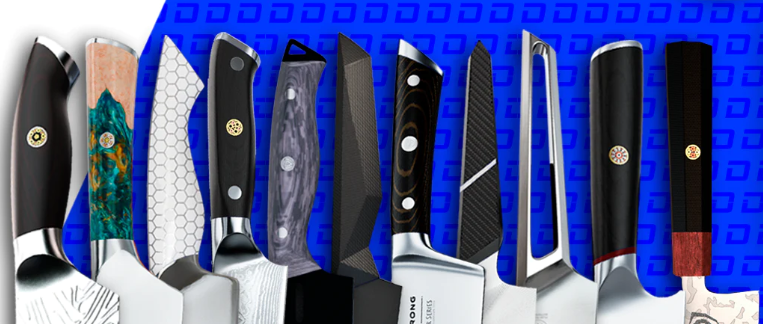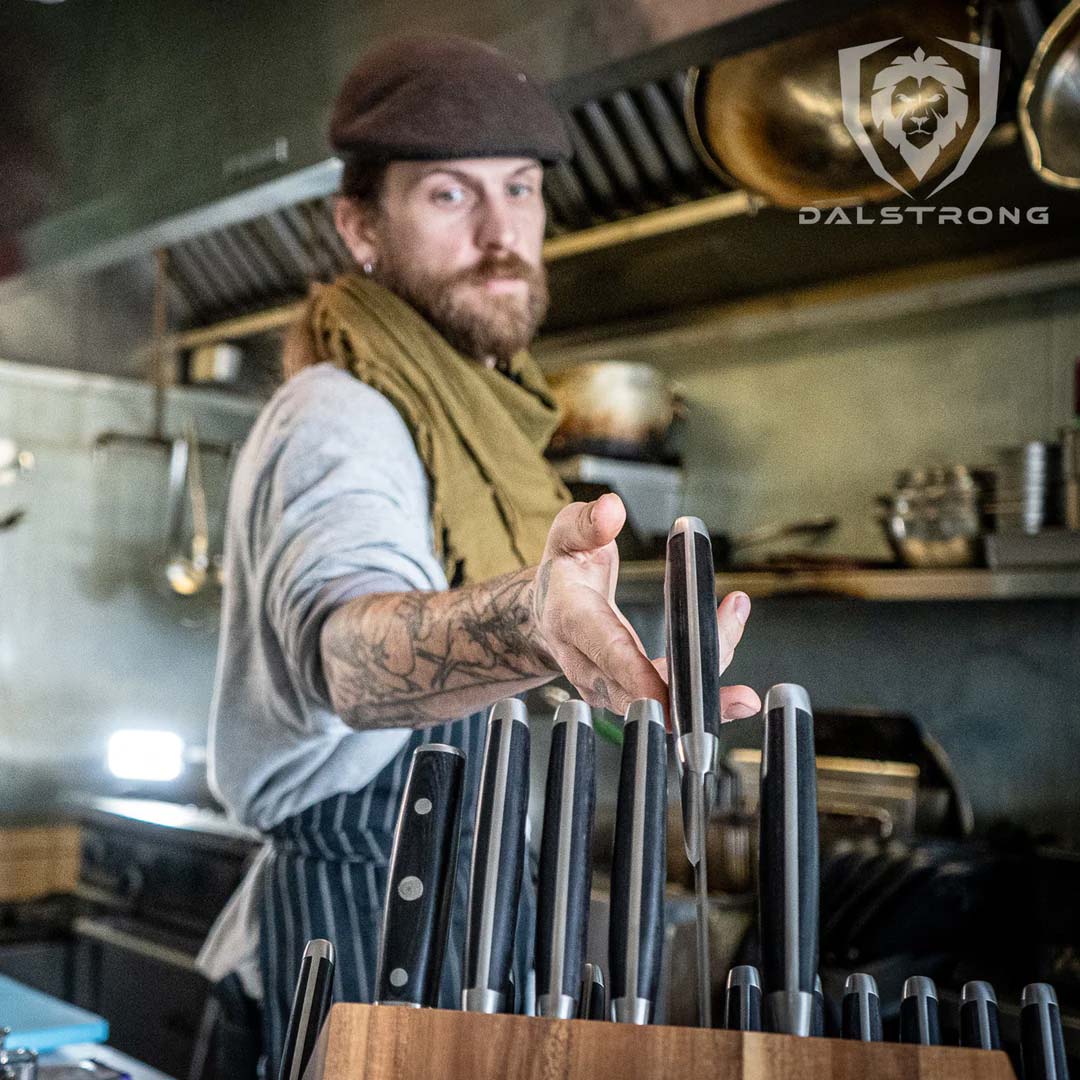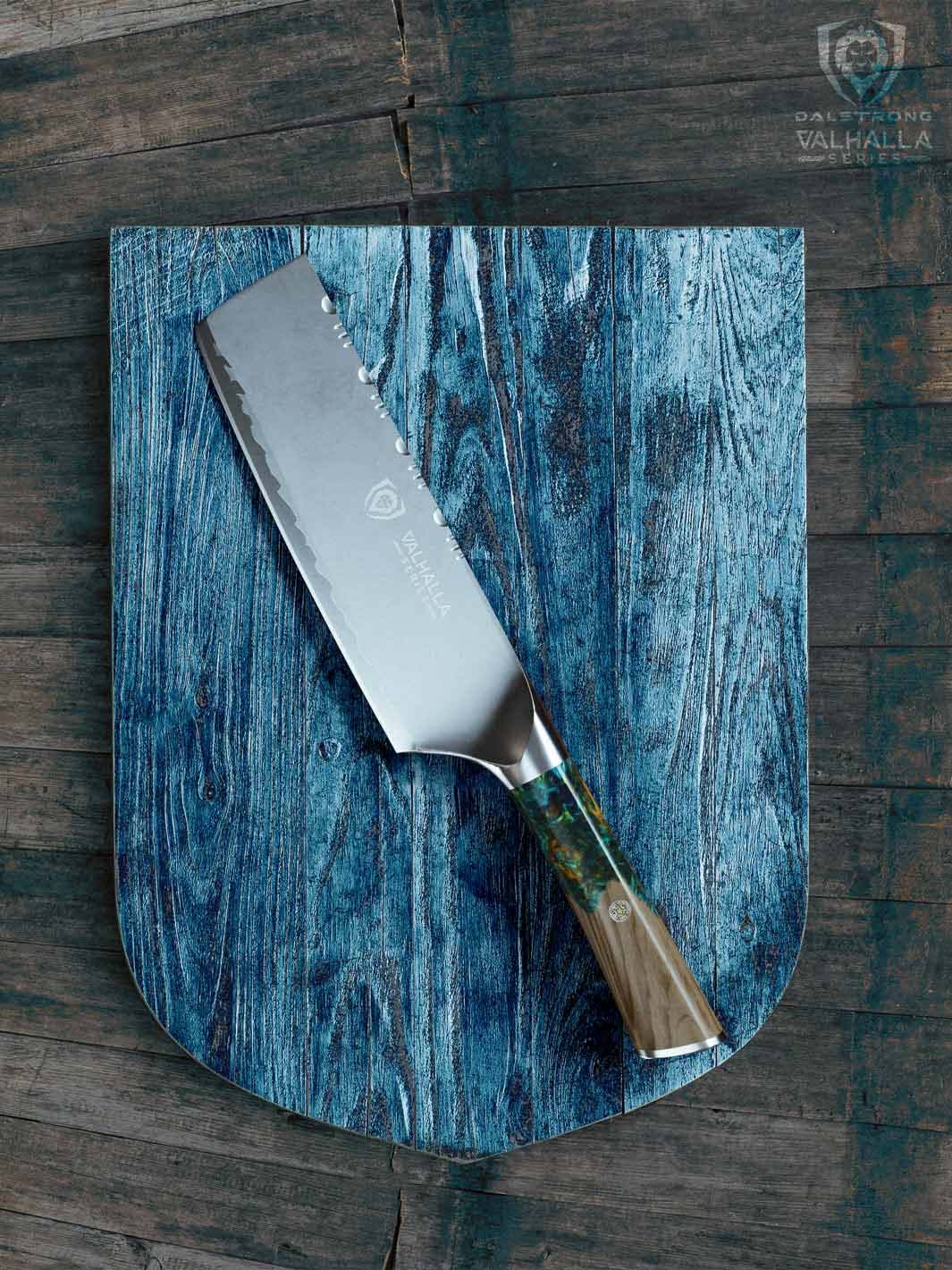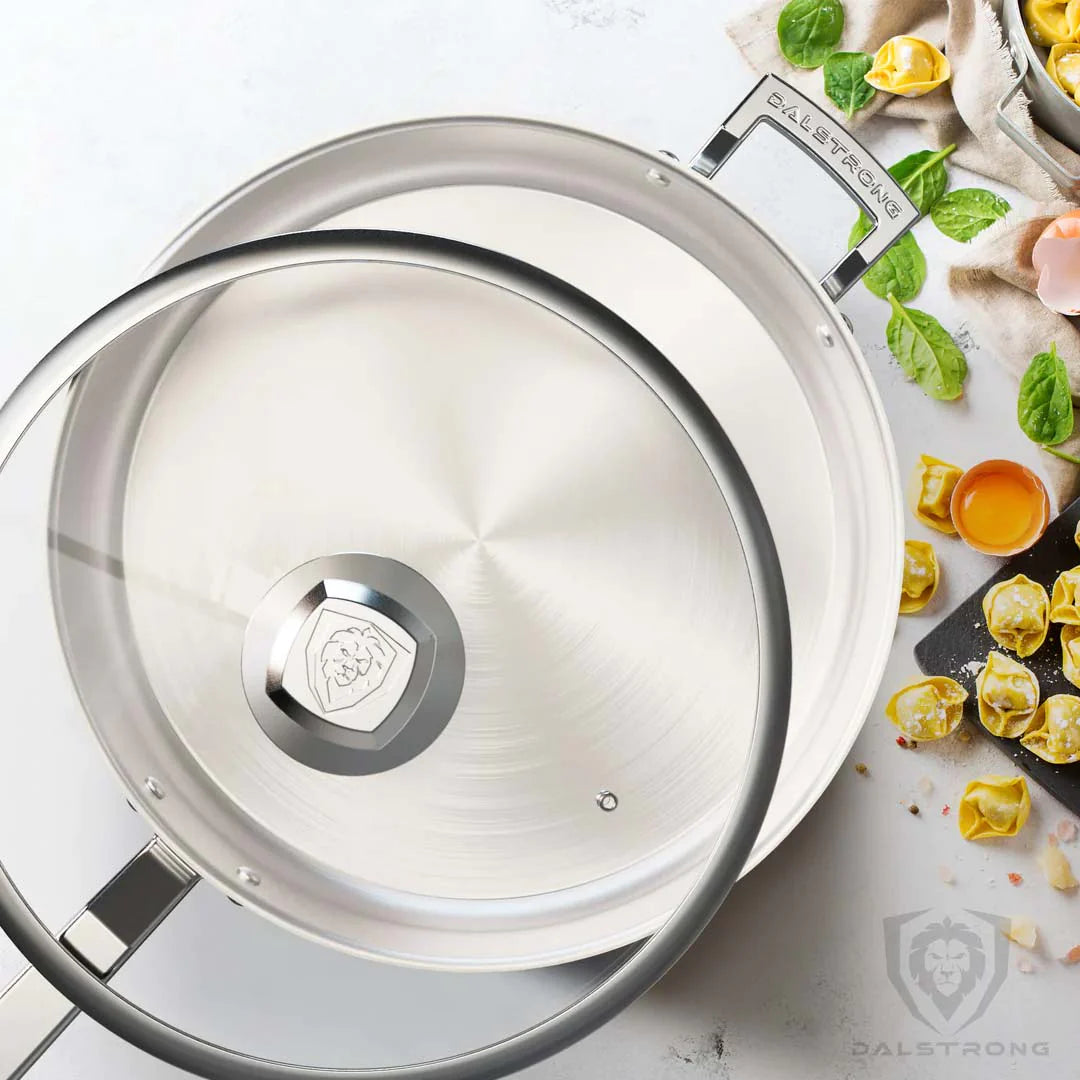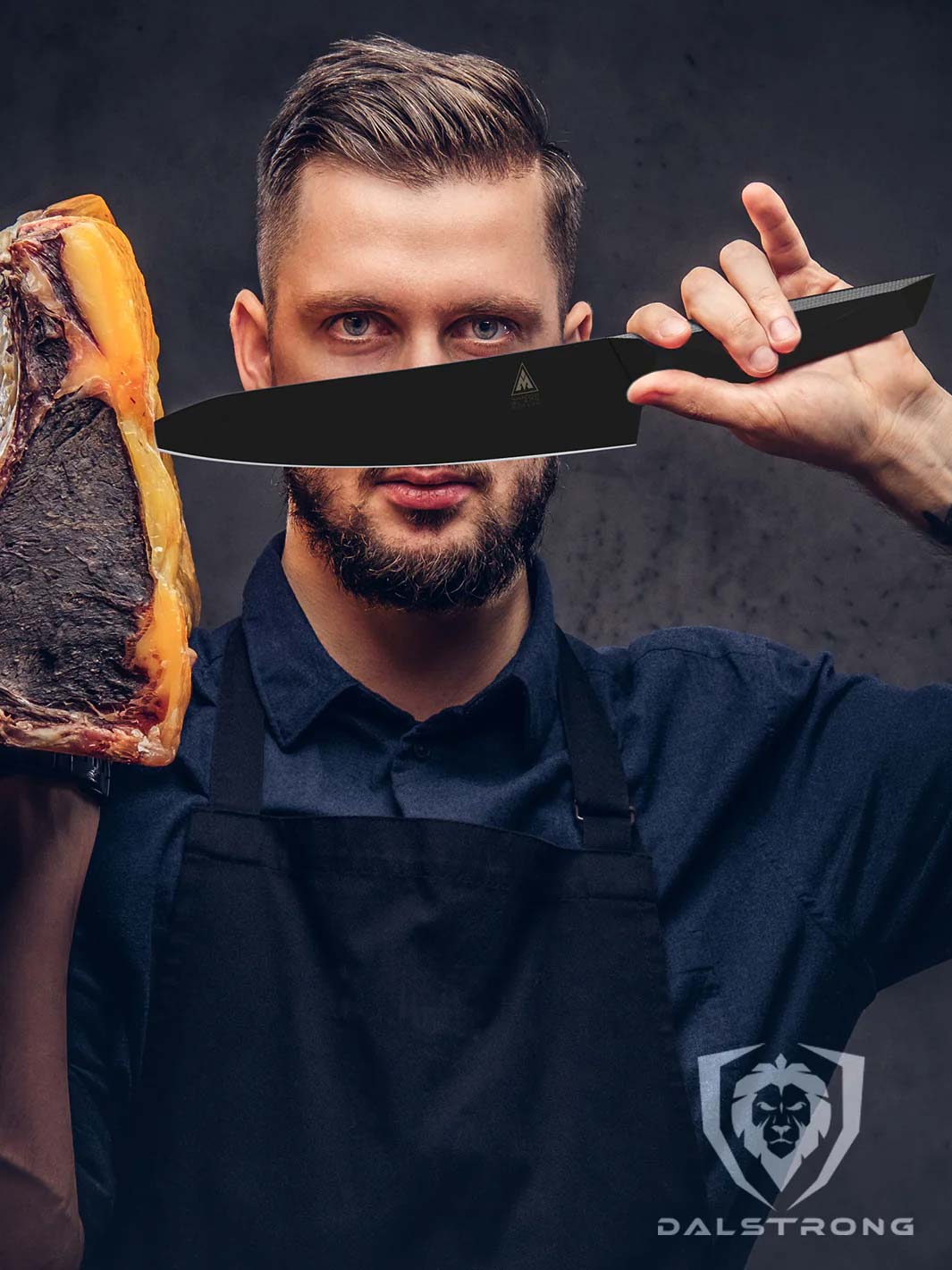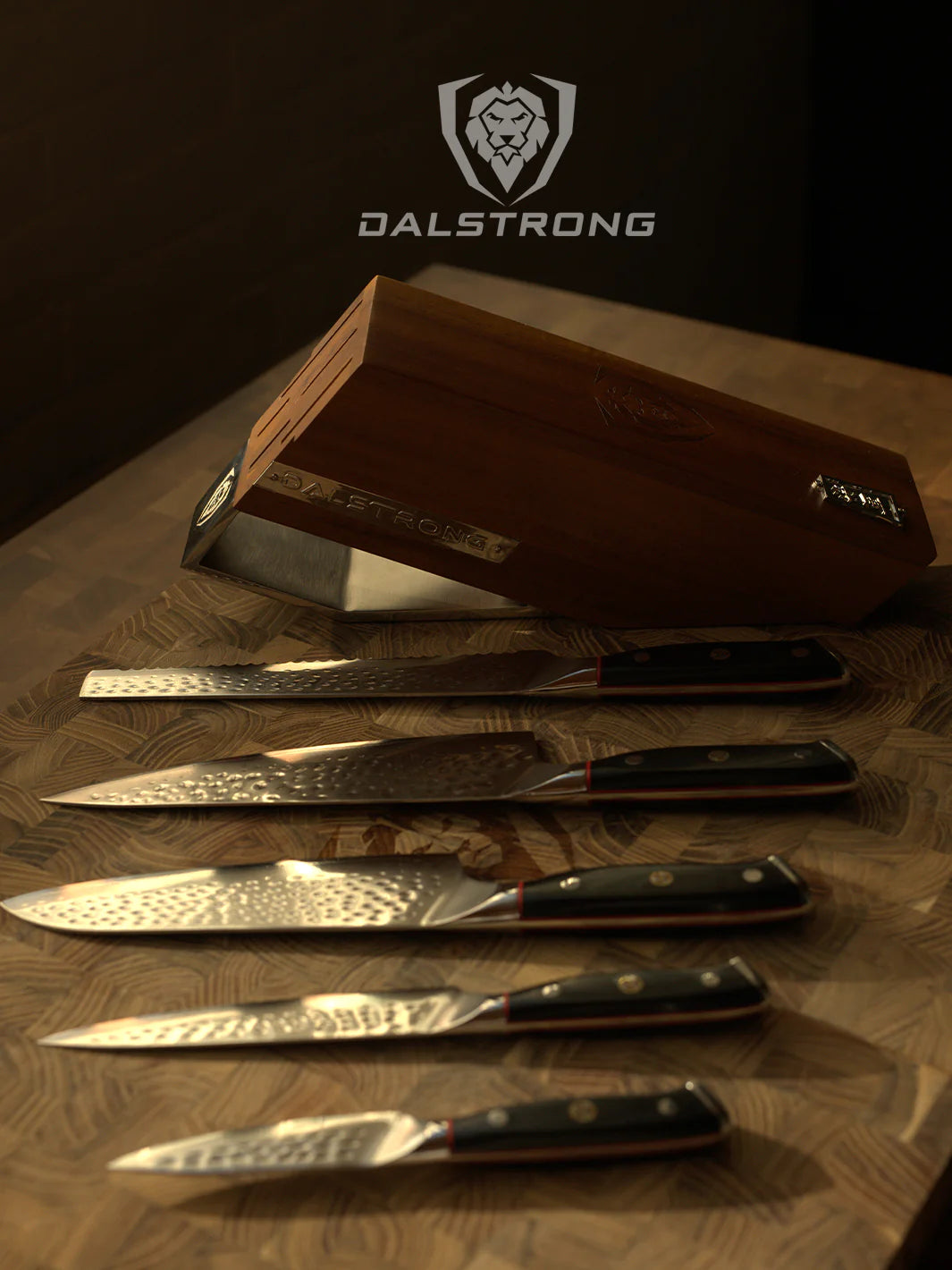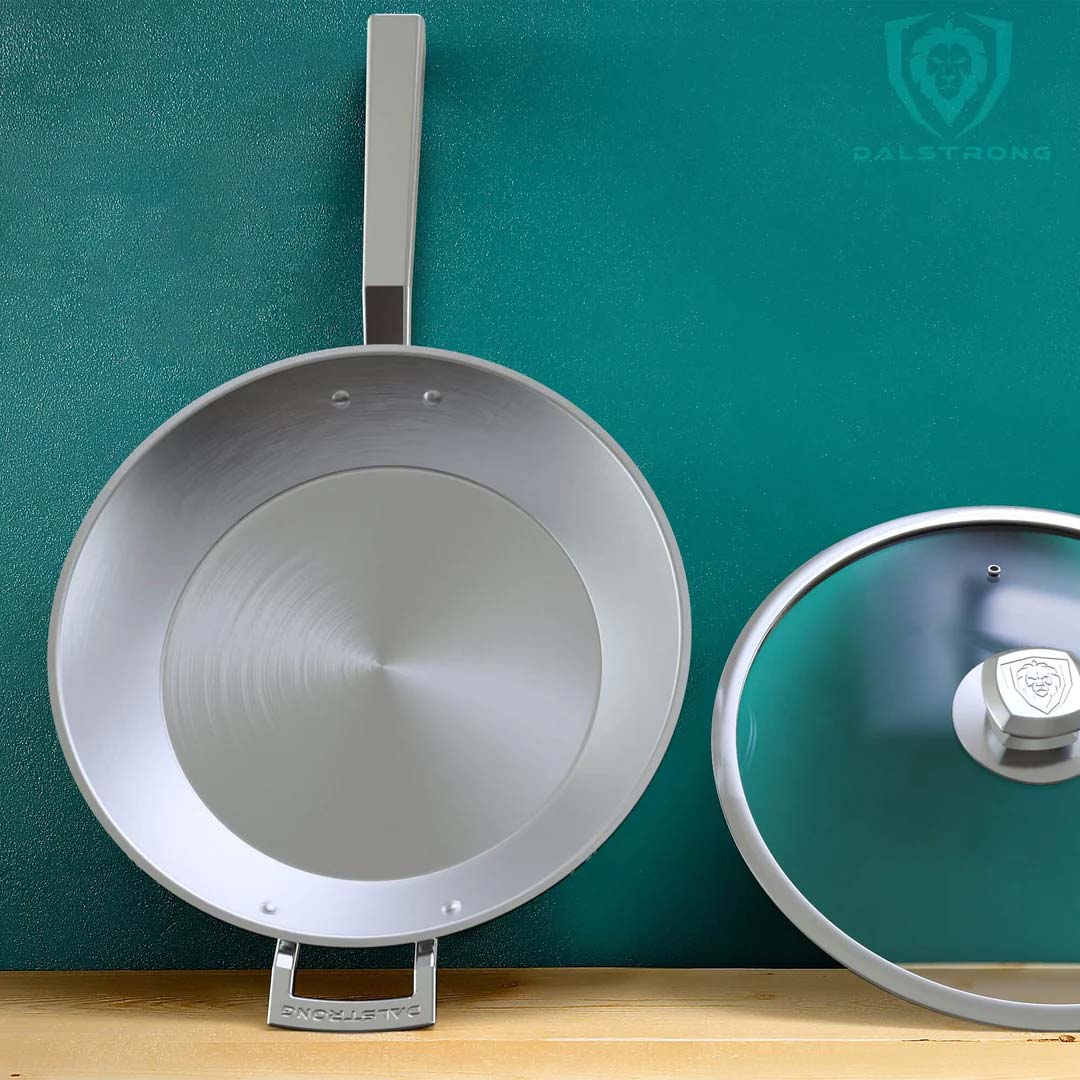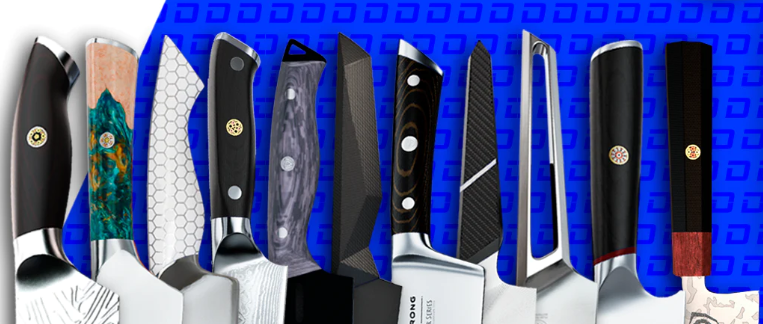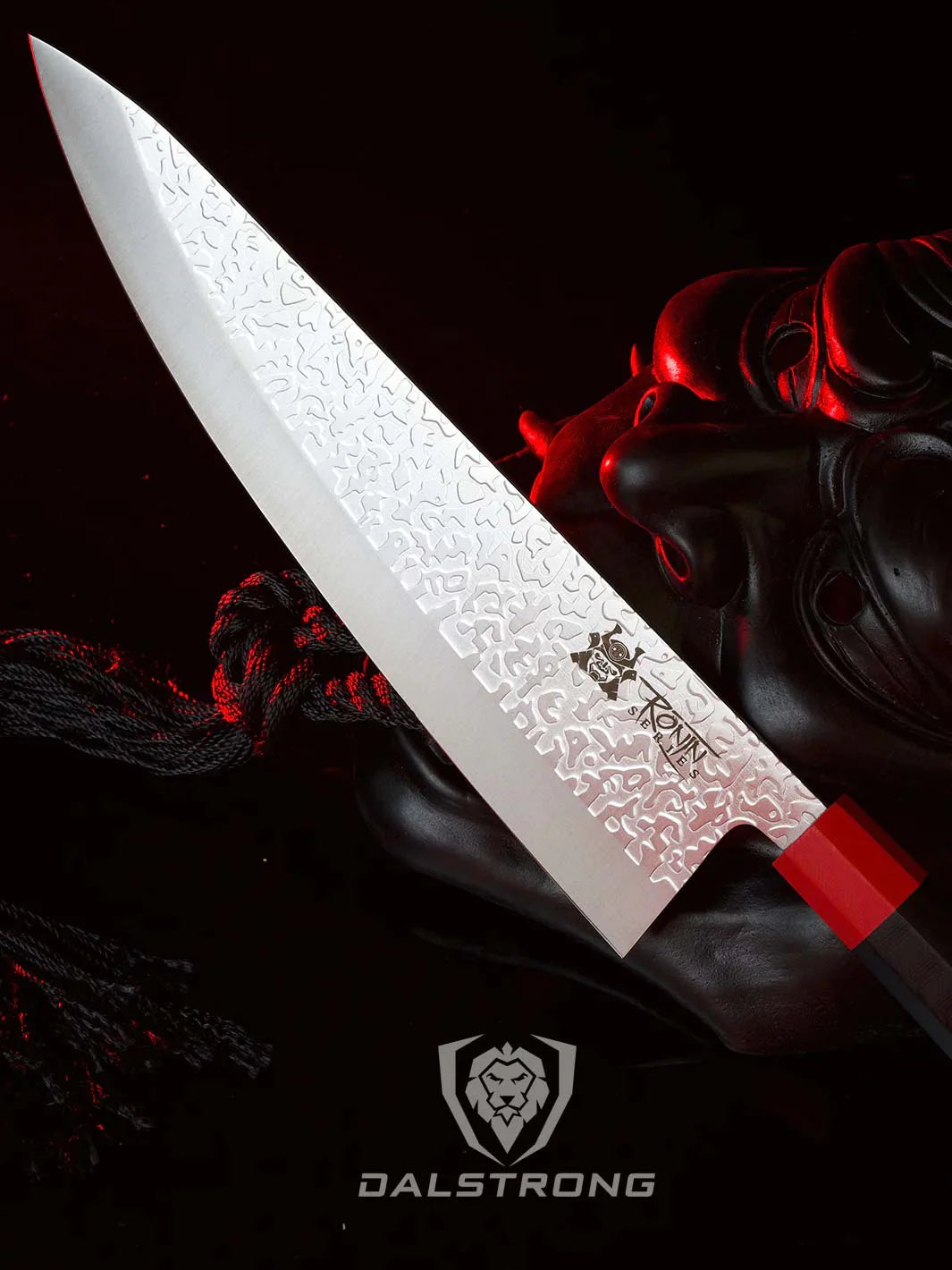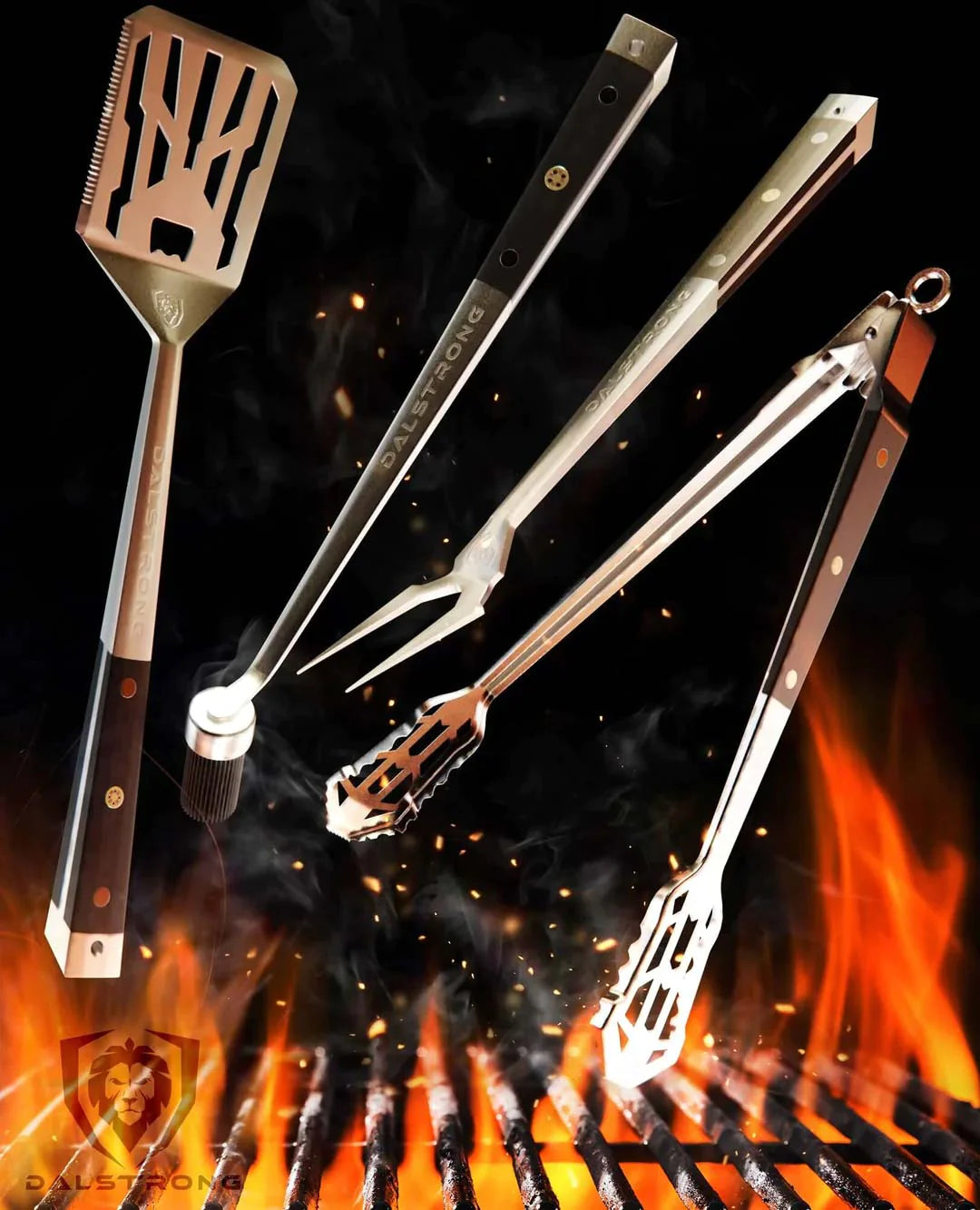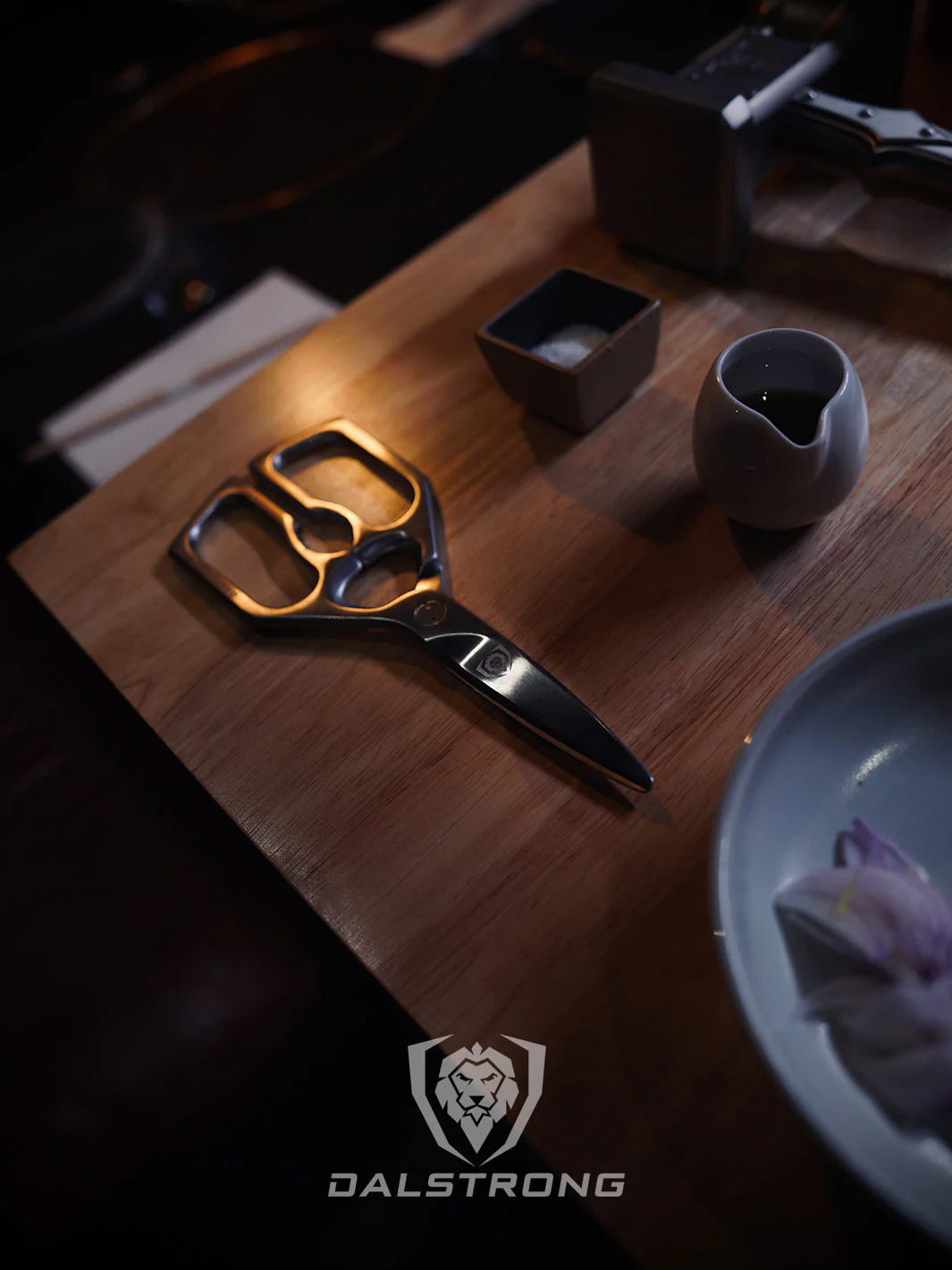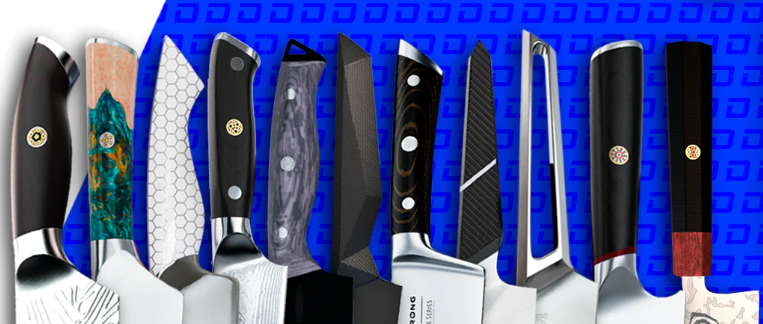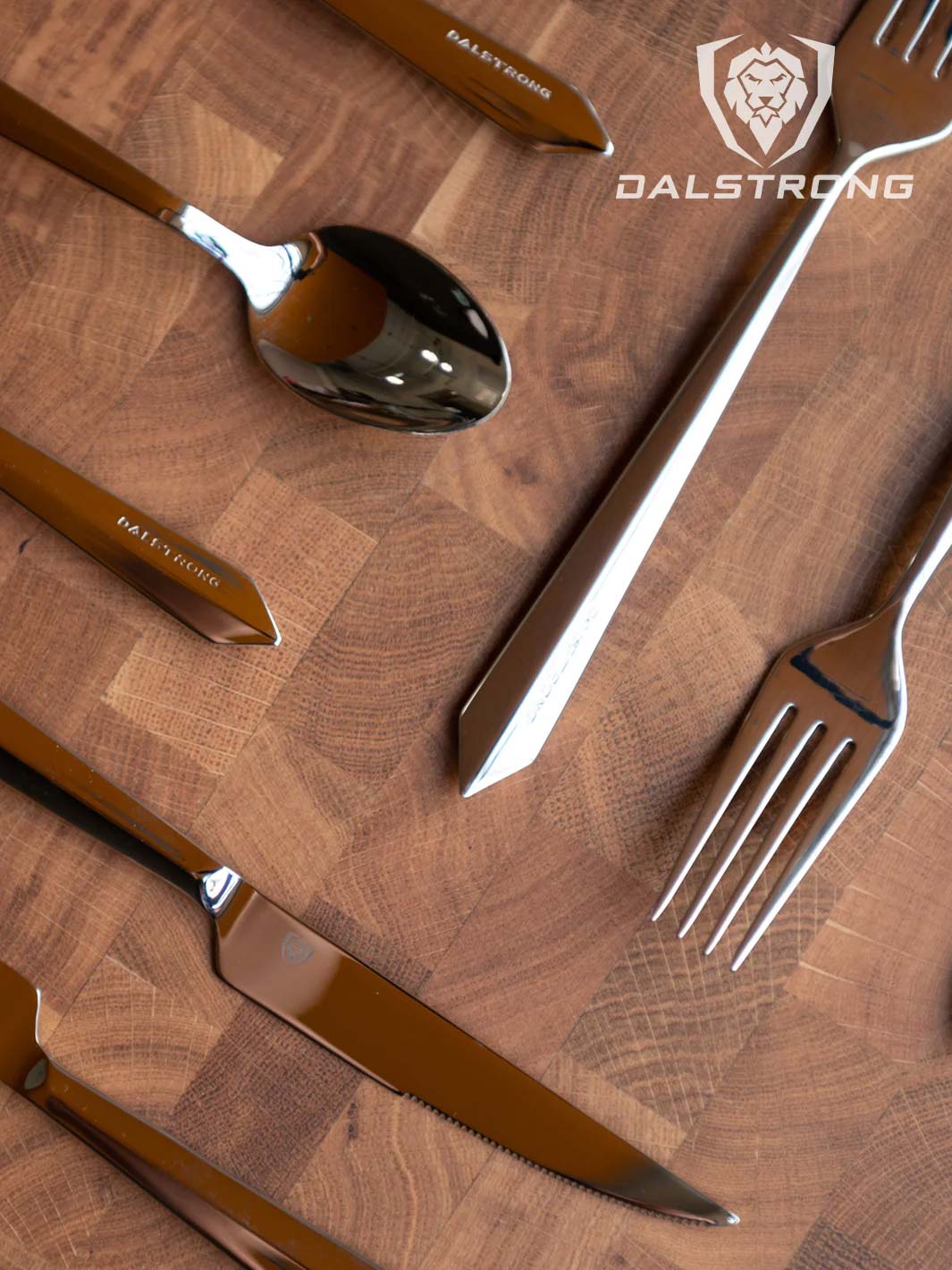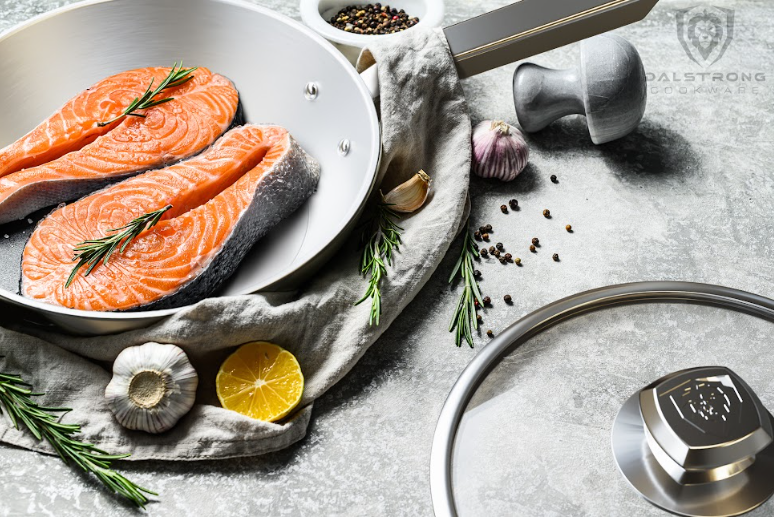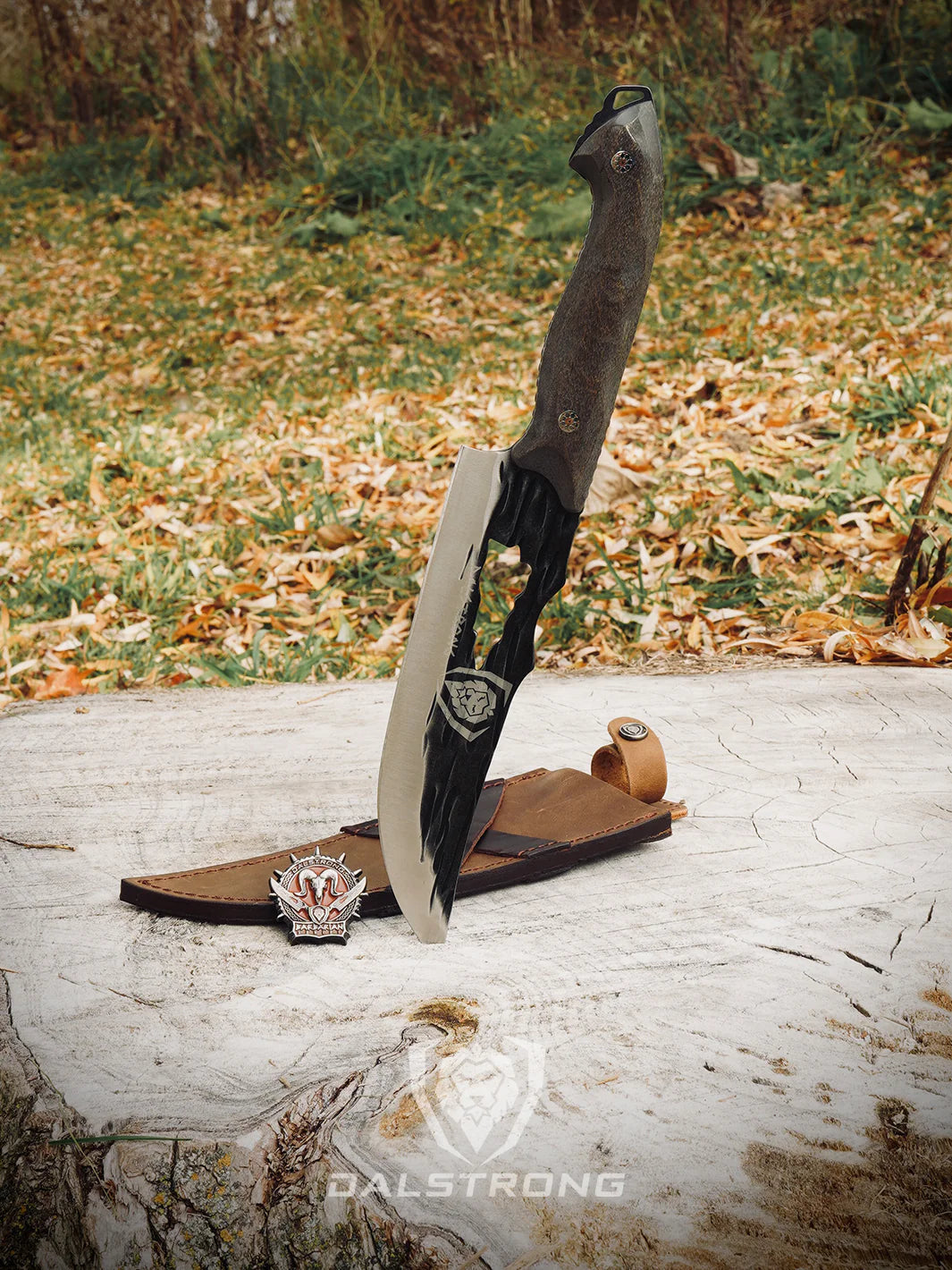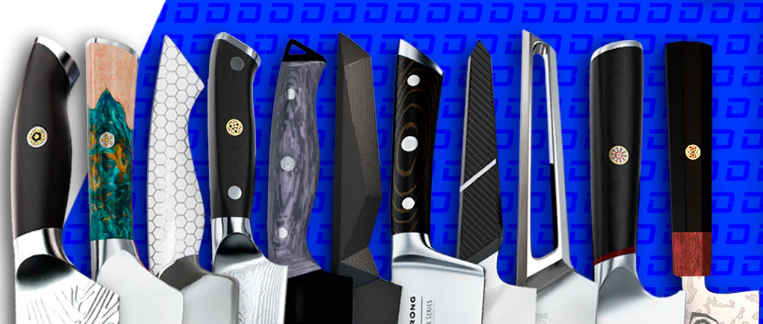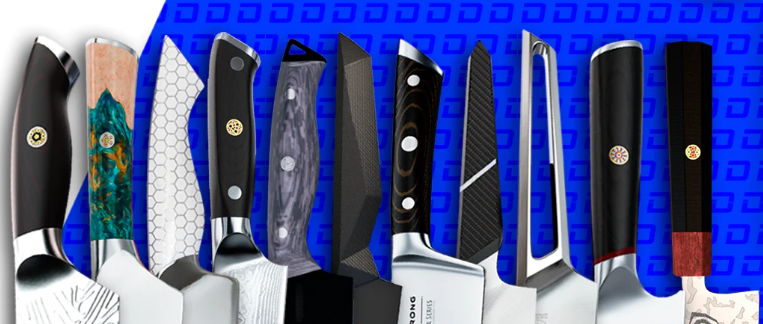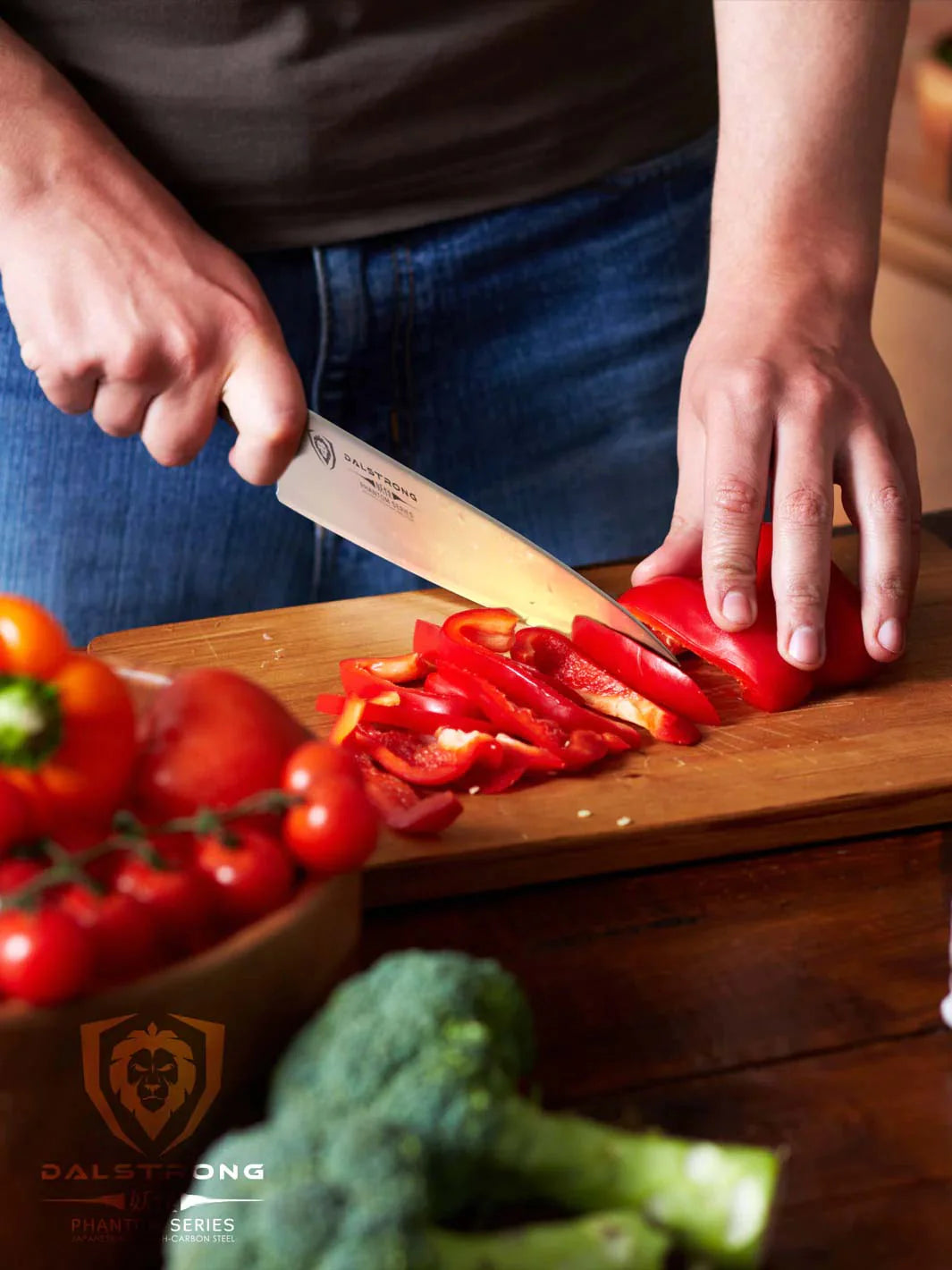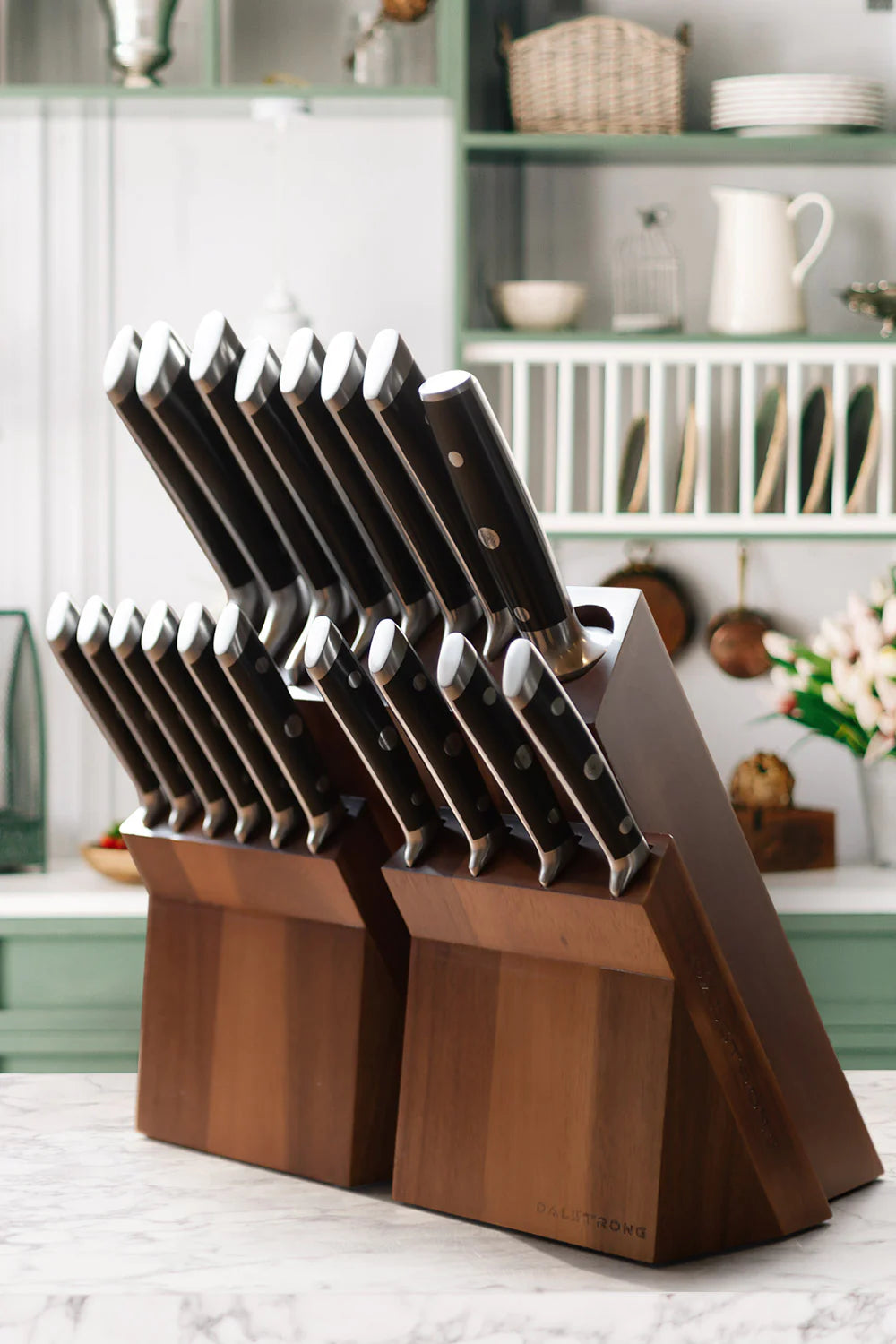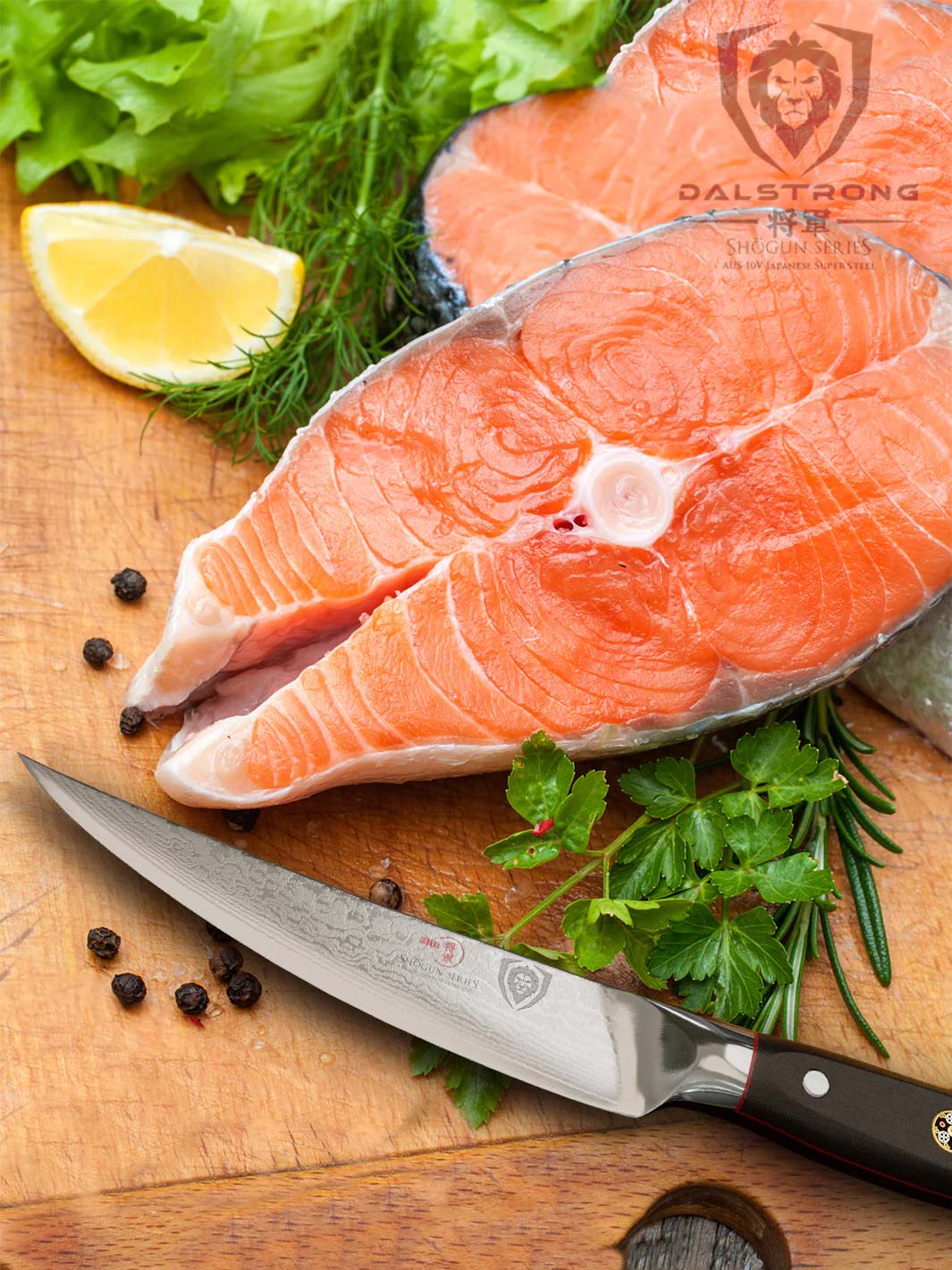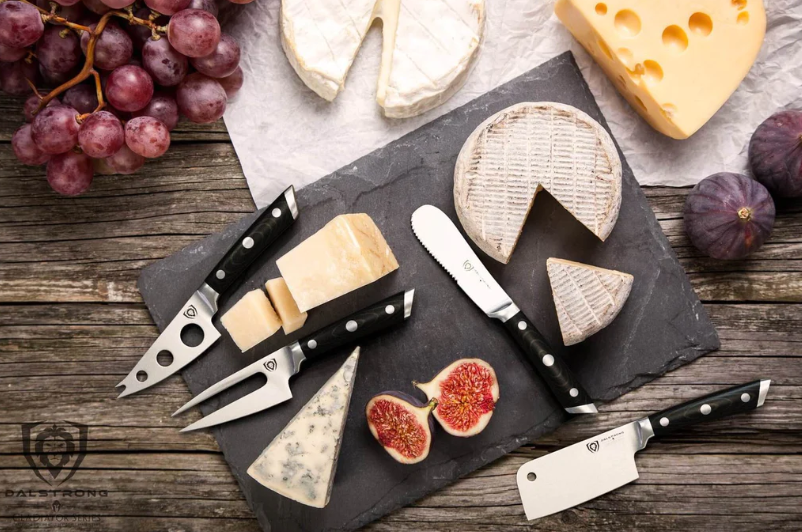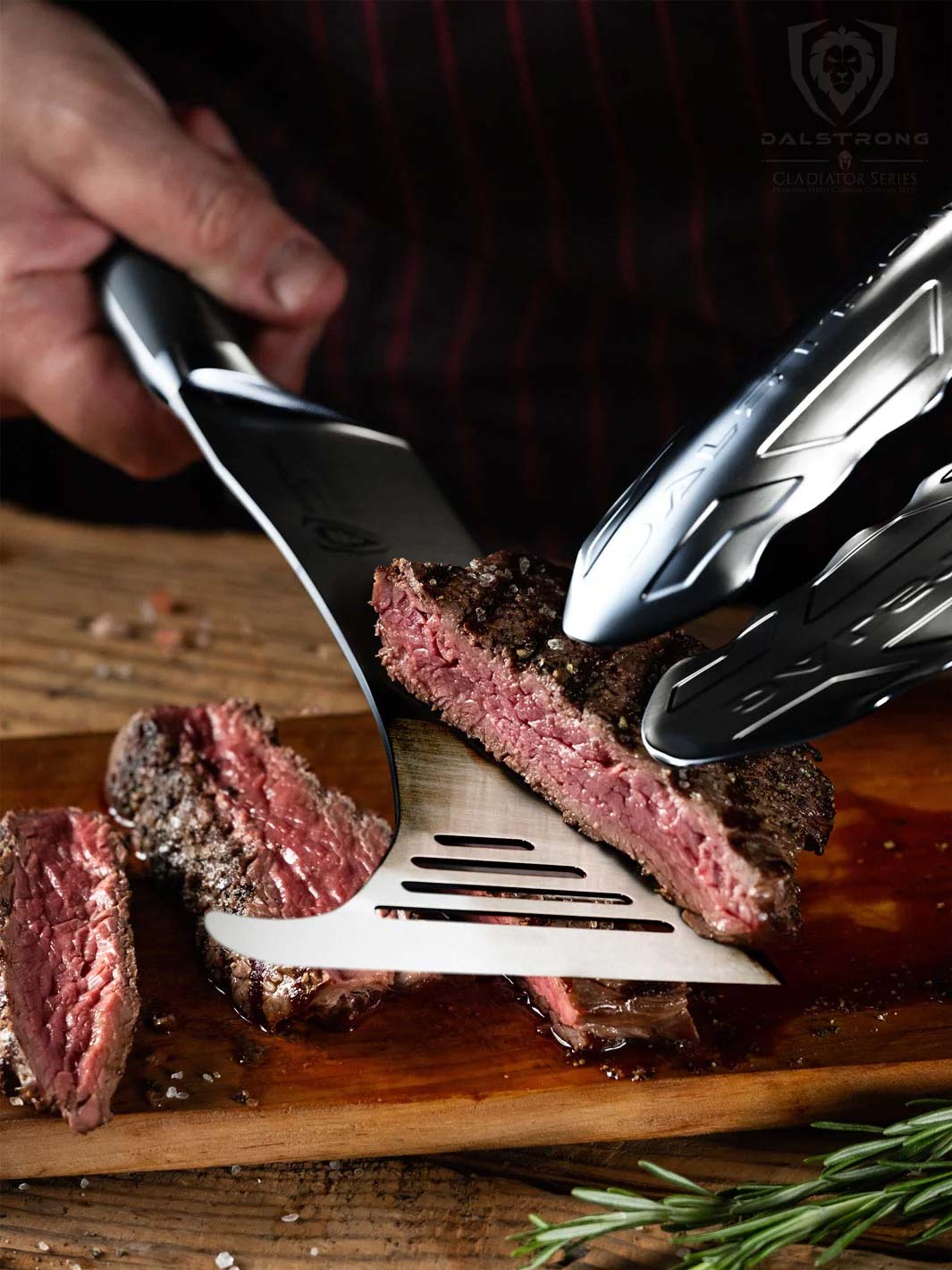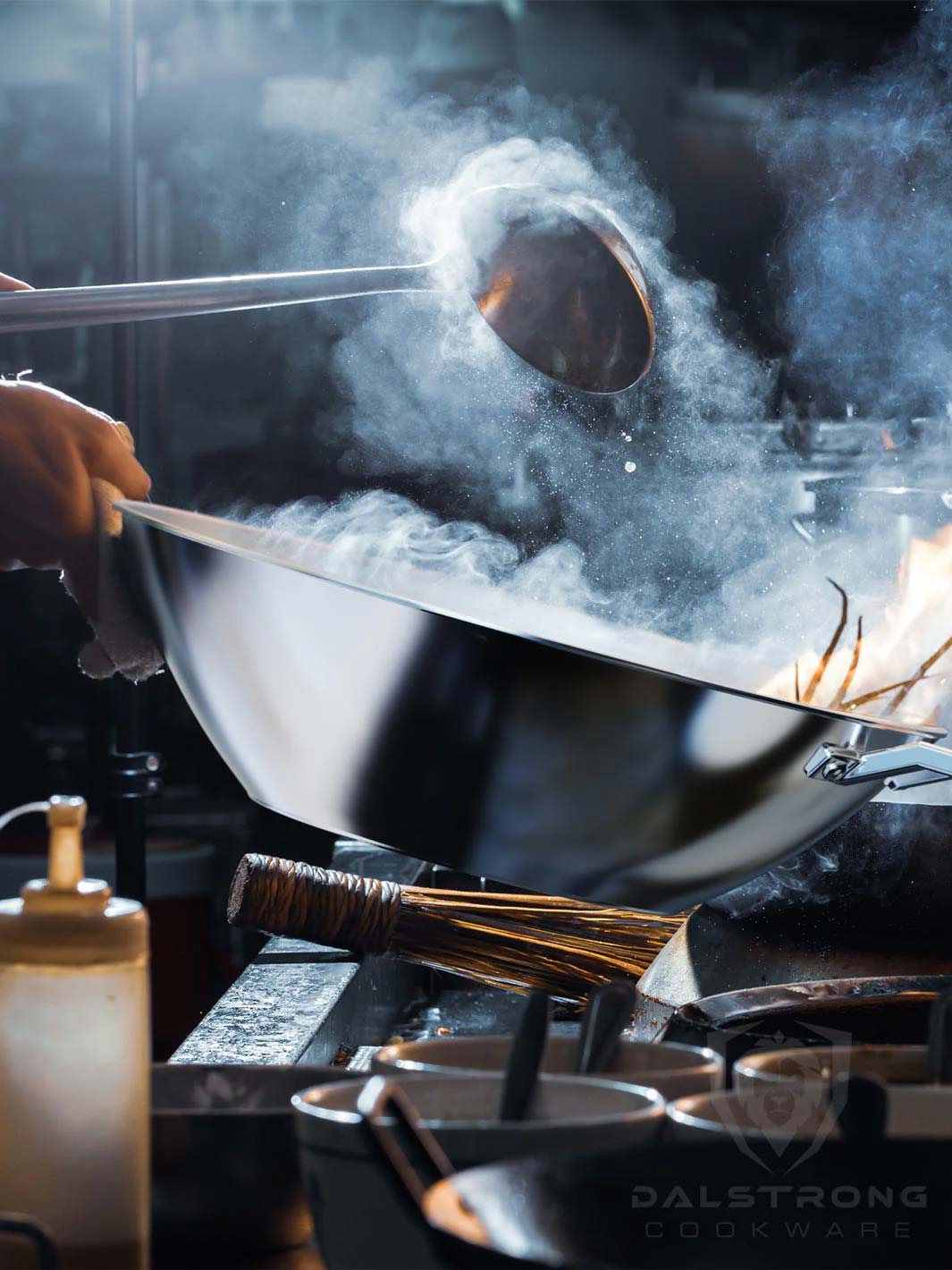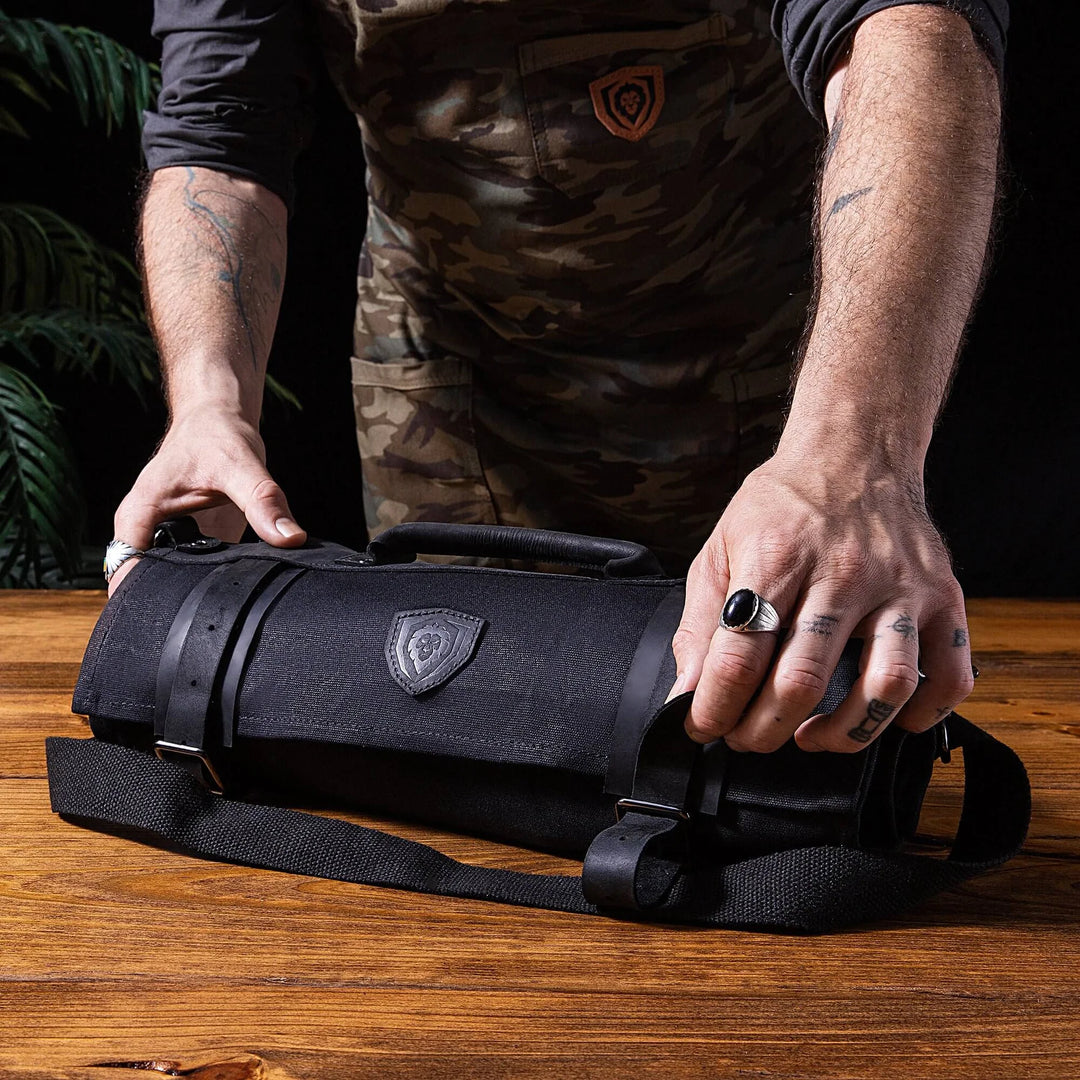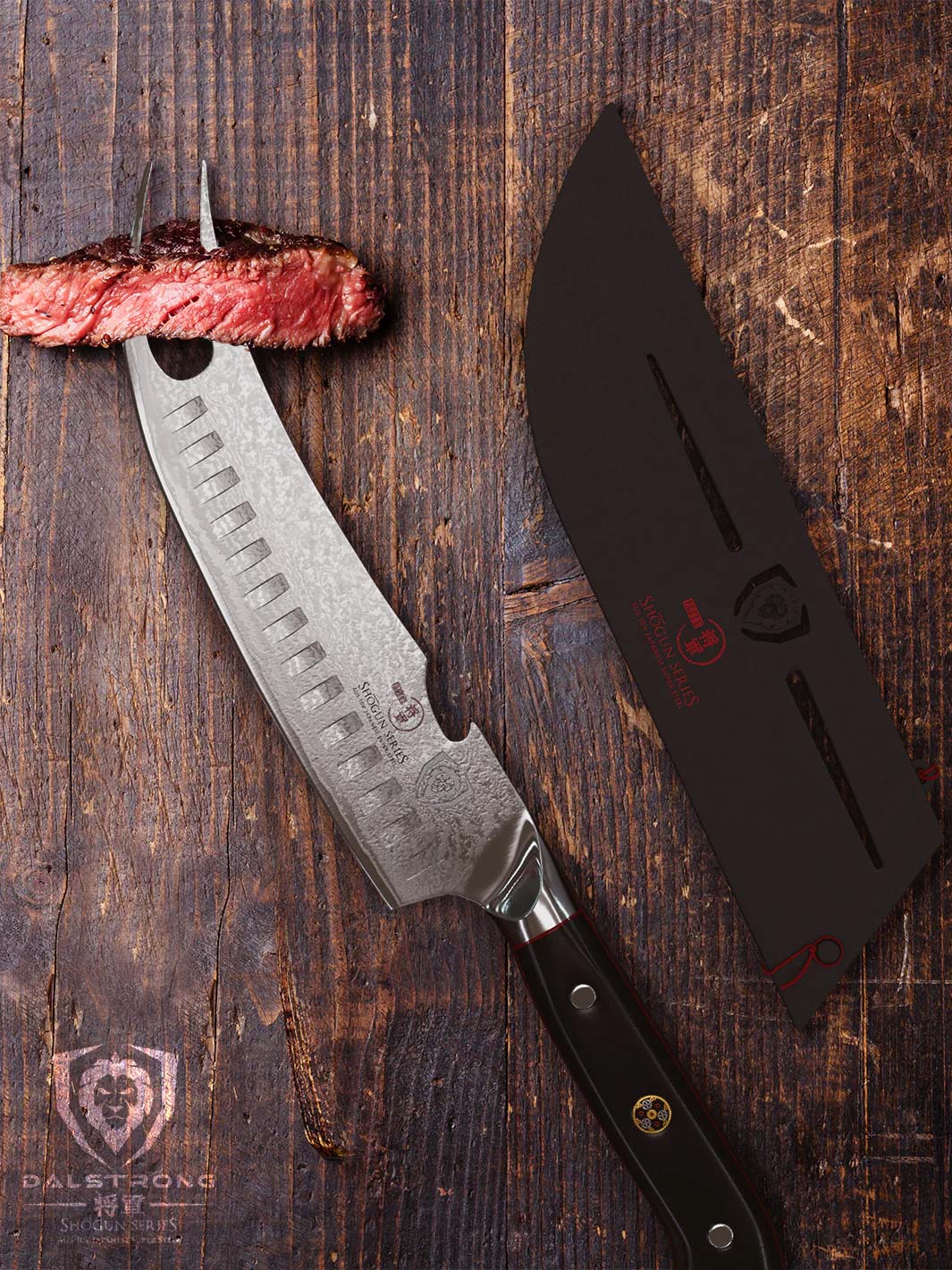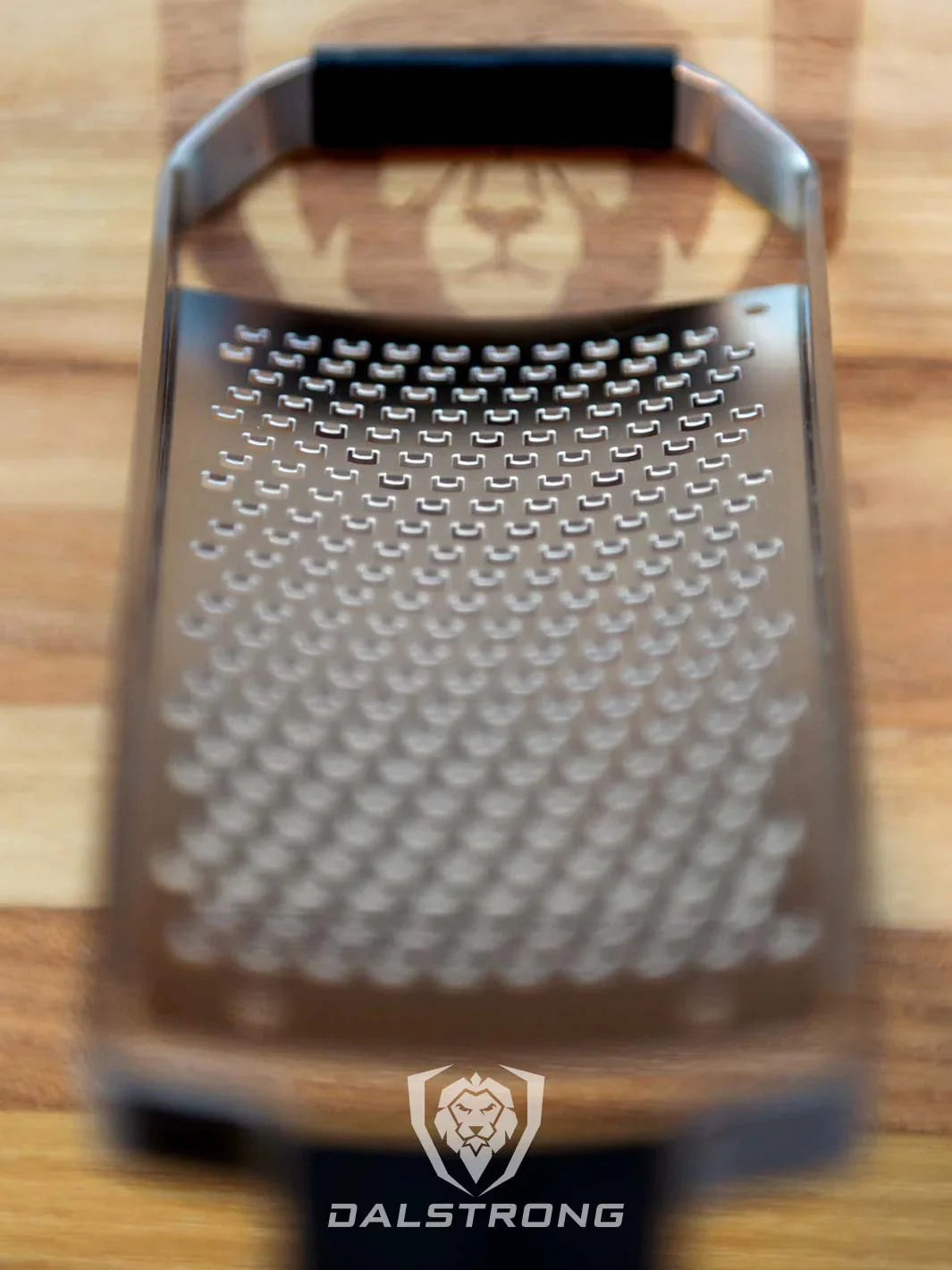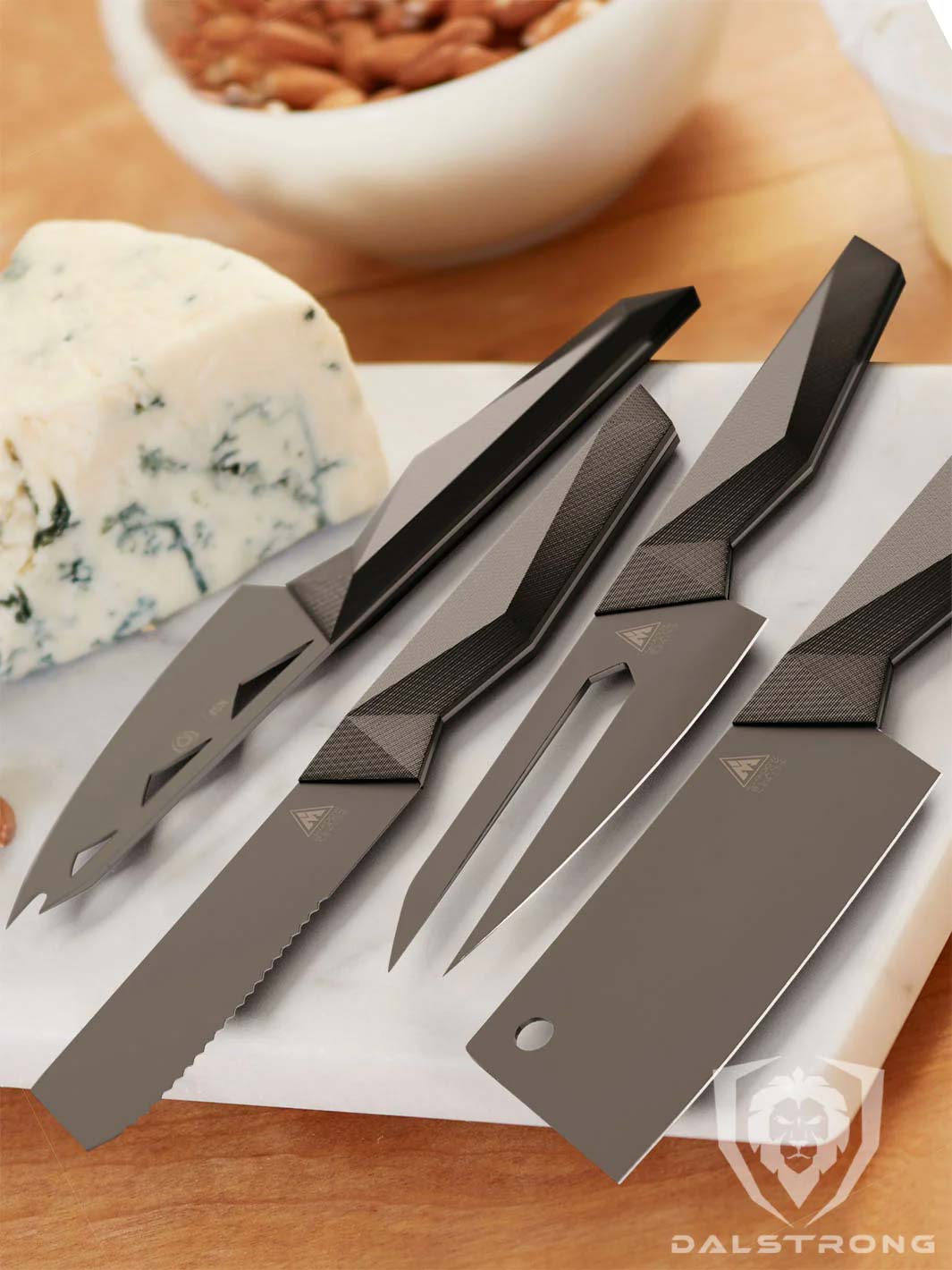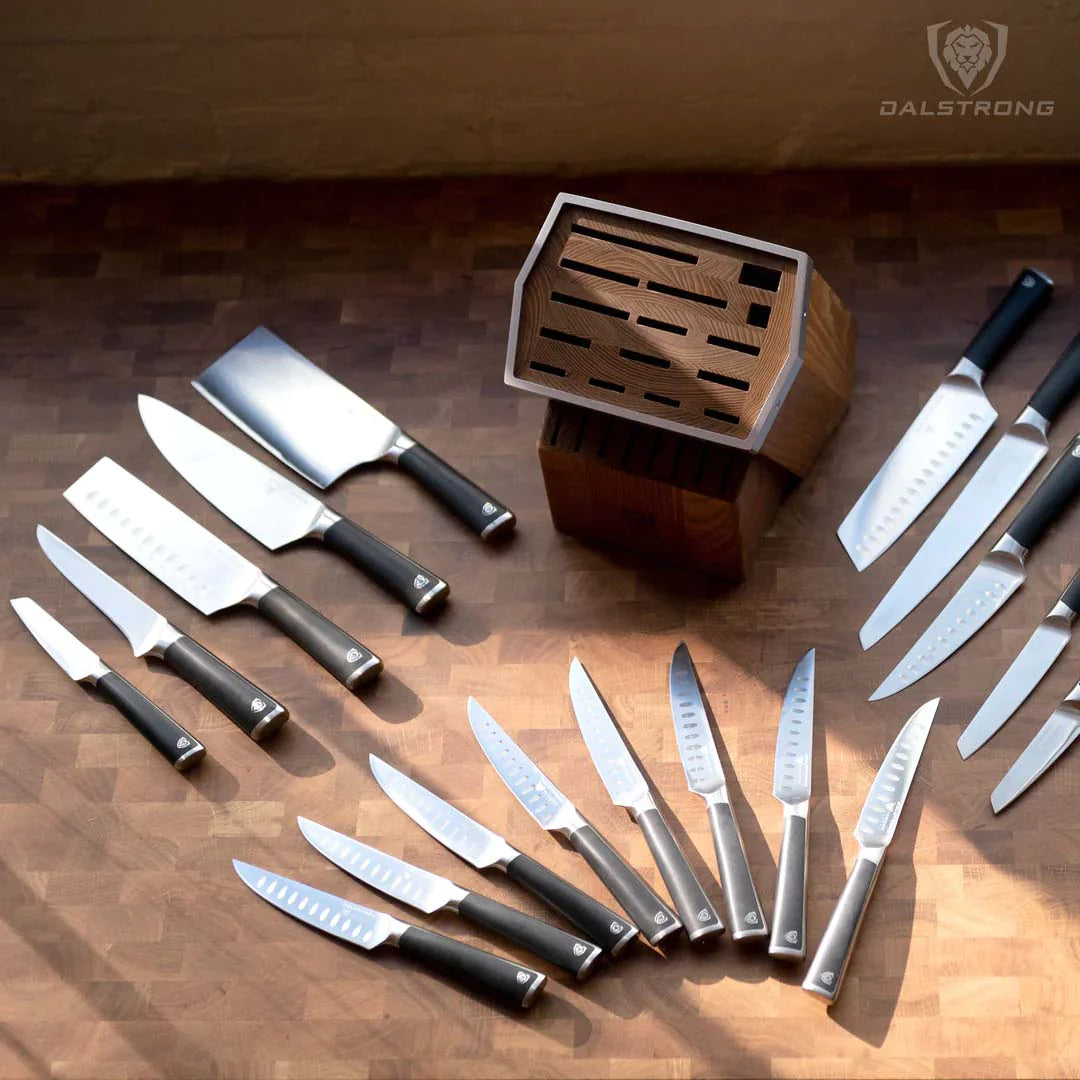Knife Sharpening Steel Buying Guide
Gladiator Series Honing Steel 10"
In this blog, we dive into the intricacies of honing rods, exploring their materials, usage techniques, and the science behind their effectiveness. We'll also share expert tips and recommendations to help you achieve professional-level results at home. Whether you're a seasoned chef or a novice home cook, this guide will equip you with the knowledge and skills to keep your knives in optimal condition.
1. What Is A Knife Sharpening Steel?
Frost Fire Series Honing Rod 10"
A knife sharpening steel, also known as a honing rod, is an essential tool for maintaining the sharpness of kitchen knives. If you have a collection of knives, chefs knives, and knife block sets, maintaining their blades are priority.
Made from steel, ceramic, or diamond, these rods are designed to straighten and smooth the blade's edge rather than removing material to sharpen the knife. Using a honing steel regularly can help to prolong the life of your knives by preventing the blade from becoming misaligned or dull.
It's a misconception that honing rods sharpen knives like a sharpening stone; they primarily align the microscopic teeth along the edge, enhancing its cutting performance. Depending on the knife's edge, different materials can be used. Ceramic honing rods are ideal for harder blades, like those found in ceramic knives, while steel or diamond rods are more suitable for stainless steel knives.
It's essential to use a honing steel correctly, maintaining a consistent sharpening angle and applying gentle pressure while running the blade along the rod. Proper knife maintenance, including regular honing, is key to keeping knives sharp and effective.
2. How To Use A Knife Sharpening Steel
Here's the step-by-step process to use a knife sharpening steel:
- Start with a Clean Steel: Before you begin, make sure your sharpening steel is clean and dry. Wipe it down with a damp cloth or paper towel to remove any dirt or debris.
- Choose the Right Angle: Hold the sharpening steel vertically with the tip resting on a stable surface. Position the knife's blade at a 15 to 20-degree angle to the steel.
- Position the Knife Blade: Hold the knife with the blade facing away from you. Place the heel of the blade (the widest part) at the top of the steel, near the handle.
- Swipe the Blade Down the Steel: With gentle pressure, slowly pull the knife blade down the steel, moving it from the heel to the tip. Maintain a consistent degree angle and make sure the entire length of the blade contacts the steel.
- Alternate Sides: After sharpening one side of the blade, repeat the process on the other side. Alternate sides with each pass to ensure the edge is evenly sharpened.
- Repeat for the Required Number of Passes: The number of passes required to sharpen the knife depends on its condition. Generally, start with 5-10 passes per side.
- Wipe the Blade: After sharpening, wipe the knife blade with a damp cloth or paper towel to remove any metal shavings.
- Test the Sharpness: To test the sharpness, try cutting a piece of paper or a ripe tomato. If the knife slices through effortlessly, it's adequately sharpened.
- Store Your Knife Safely: Proper storage helps maintain the knife's sharpness. Consider using a knife block, magnetic strip, or sheath to protect the blade when not in use.
- Regular Maintenance: Regularly honing your knives (using a steel) is essential to keep them sharp between sharpening sessions. Aim for honing every 2-3 times you use your knife.
Remember, the goal is to maintain the knife's existing edge, so use light pressure and keep a consistent angle. With practice, you'll become proficient at using sharpening rods and keep your knives in excellent condition for all your culinary adventures!
Read about the best way to store your knives, here.
3. Knife Sharpening Steel Buying Guide
Ceramic Coating Honing Rod 10"
Whether you're a professional chef or a home cook, having sharp knives is crucial for efficient and safe cooking. But even the best knives can become dull over time, which is where a good knife sharpening steel comes in. A dull knife pose safety risk in the kitchen.
In this comprehensive buying guide, we'll discuss the different types of sharpening steels (also called sharpening rods or sharpening stone), what to consider when purchasing one, and our top picks to help you choose the best option for your needs.
Types of Sharpening Steels
Traditional Sharpening Steel
Also known as a honing rods or sharpening rods, this type of sharpening steel is usually made of steel and features a long, cylindrical shape. Traditional sharpening steels are ideal for maintaining the edge of a knife that's already relatively sharp. They don't remove much material from the blade but rather realign and straighten the edge, making it sharper and more efficient.
Ceramic Sharpening Steel
Ceramic sharpening steels are made from ceramic materials and are harder than steel. This makes them ideal for maintaining the sharpness of harder steel knives, like those used in Japanese knives. Ceramic steels are less aggressive than steel steels, so they're more suited to fine-tuning an already sharp edge rather than sharpening a dull blade.
Diamond Sharpening Steel
Diamond sharpening steels are made with a coating of industrial-grade diamond particles, making them the most abrasive of the three types. They're excellent for sharpening very dull knives, especially those made from hard steel. However, they're also more aggressive and can remove more material from the blade, so they require a lighter touch and more care.
What to Consider When Choosing a Sharpening Steel
Material
The material of the sharpening steel can affect its performance and durability. Steel sharpening steels are durable and effective for most types of knives, while ceramic sharpening steels are better suited for maintaining the edges of harder knives. Diamond sharpening steels are highly abrasive and best used for more aggressive sharpening.
Length
Sharpening steels come in different lengths, ranging from around 9 to 14 inches. A longer steel is generally better for longer knives and offers more control and stability. However, a shorter steel can be more portable and easier to store.
Handle: The handle of the sharpening steel should be comfortable to hold and provide a secure grip. Look for a handle with a non-slip grip to ensure safe and efficient sharpening.
Shape
Sharpening steels can have different shapes, including round, oval, and square. The shape of the steel can affect how it interacts with the knife blade and how easy it is to use. Generally, round and oval steels are more versatile and suitable for most knives.
Maintenance
Consider how easy it is to clean and maintain the sharpening steel. Some models are dishwasher-safe, while others require hand washing and drying.
Choosing the right sharpening steel for your needs is essential for maintaining the sharpness and performance of your knives. Consider the material, length, handle, shape, and maintenance requirements of the steel to find the best option for your kitchen. Whether you choose a traditional steel, ceramic steel, or diamond steel, regular maintenance and proper usage will ensure that your knives stay sharp and ready for all your cooking tasks.
4. Must-Have Dalstrong Knife Sharpening Steels
1. Honing Steel 10" | Gladiator Series | NSF Certified | Dalstrong
Experience the pinnacle of precision with the Dalstrong Gladiator Series 10” honing steel. It's a professional-grade solution for ensuring your knife's edge is always in optimal condition for peak performance. Handcrafted from high-quality stain-resistant carbon steel, the rod is triple-riveted for durability and features an ergonomic, military-grade G10 handle that's highly impervious to heat, cold, and moisture. Plus, the attractively formed bolster provides protection for your hand and enhances balance. Engraved Dalstrong center rivet and low-maintenance cleaning add to the appeal.
PROS:
- Precision-forged, ultra-sharp, wear-resistant steel for peak performance.
- Premium military-grade G10 handle for durability and comfort.
- The 10” length is perfect for most sized knives, and the tiny grooves along the steel’s surface effectively straighten the edge.
- Low-maintenance cleaning for convenience.
CONS:
- The triple-riveted construction may add weight.
2. Honing Rod 10" | Ceramic Coating | Dalstrong
Enhance your knife maintenance routine with the Dalstrong 10” Ceramic Honing Rod. This premium rod gently sharpens your knives to peak performance, thanks to its high-carbon stainless steel core and Dalstrong’s scratch-free black ceramic coating. Tthe ceramic coating is ideal for use on valuable steels with high Rockwell Hardness, such as those from our Shogun, Phantom, Omega, and Quantum Series. The triple-riveted black G10 handle offers life-long durability, and the silicon-covered tip provides increased stability on surfaces while also protecting them.
PROS:
- High-carbon stainless steel core and ceramic coating for gentle sharpening.
- Triple-riveted black G10 handle for durability and comfort.
- Silicon-covered tip for increased stability and surface protection.
- Requires minimal cleaning and is ultra-durable. This honing rod is built to last in professional kitchens.
CONS:
- The G10 handle may feel less comfortable for some users.
3. Honing Steel 9" | Shadow Black Series | NSF Certified | Dalstrong
The Dalstrong Shadow Black Series Honing Steel is the ultimate tool for maintaining a razor-sharp edge. Crafted from high-carbon steel with chrome plating, this honing steel is built for maximum performance, wear, and corrosion resistance. The grooves along the steel rod gently realign your knife blade, bringing back its razor-sharp edge quickly. Whether you're a professional chef or a home cook, the Shadow Black Series Honing Steel ensures your blades are always ready for peak performance. The sleek black design and ergonomic handle add style to the durability and effectiveness of this honing steel.
PROS:
- High-carbon steel construction with chrome plating for durability.
- Minute grooves along the surface realign knife blades effectively.
- Sleek black design adds style to functionality.
- Ergonomic handle enhances comfort and control during use.
CONS:
- The 9-inch length may be too short for larger knives.
4. Honing Rod 10" | Frost Fire Series | NSF Certified | Dalstrong
The Dalstrong Frost Fire Series 10” Honing Steel is the ultimate tool for maintaining a sharp edge. Crafted from high-carbon steel, this honing steel ensures your blades are always ready for maximum performance with zero compromises. The Frost Fire Series Honing Steel ensures your knives are always in peak form. The sleek design and ergonomic handle add style to the durability and effectiveness of this honing steel.
PROS:
- High-carbon steel construction for durability.
- Minute grooves along the surface realign knife blades effectively.
- Sleek design adds style to functionality.
- Ergonomic handle enhances comfort and control during use.
CONS:
- The 10-inch length may be too long for some users.
5. Honing Steel 8" | Centurion Series | Dalstrong
The Dalstrong Centurion Series 8” Honing Steel is a professional-grade solution for keeping your knives in peak condition. Precision forged from wear-resistant SUS430 steel with a 58+ Rockwell Hardness, this honing steel ensures your blades are always ready for maximum performance. The fiber-resin military grade G10 handle is nearly impervious to heat, cold, and moisture, offering maximum comfort, grip, and maneuverability. With its ergonomic handle shape and red and copper rings, this honing steel is as stylish as it is effective. Plus, it cleans easily for low maintenance and is backed by Dalstrong's reputation for quality and reliability.
PROS:
- Precision-forged, wear-resistant SUS430 steel ensures durability.
- Fiber-resin military grade G10 handle provides maximum comfort, grip, and maneuverability.
- Rings of red and copper with a copper mosaic center rivet add beauty to the honing steel.
- Easy to clean for low maintenance.
CONS:
- The red and copper rings may not appeal to all users.
6. Honing Rod 10" | Valhalla Series | Dalstrong
The celestial blue resin handle, reinforced with stabilized wood and a stainless steel bolster, adds elegance and durability to your kitchen arsenal. And with Dalstrong’s commitment to quality, you can trust that this honing steel will ensure your blades are always ready for maximum performance.
PROS:
- SUS430 Stainless Steel for Longevity and Precision Honing.
- "Shark Skin" Texture for Precision Honing.
- Celestial Blue Resin Handle Reinforced with Stabilized Wood for Elegant and Durable.
- Rated at 58+ Rockwell Hardness.
- Dishwasher safe.
CONS:
- Resin handle may vary in color due to the nature of the mixing process.
- May not appeal to users who prefer traditional handle materials like wood or metal.
5. Frequently Asked Questions
What is the best type of sharpening steel for knives?
The best type of sharpening steel for knives varies depending on the type of knife and its intended use, with ceramic, diamond, and steel being popular options.
What metal is used to sharpen a knife?
A variety of metals, such as ceramic, diamond, and steel, are used to sharpen knives, each with its unique advantages and best applications.






















































































































